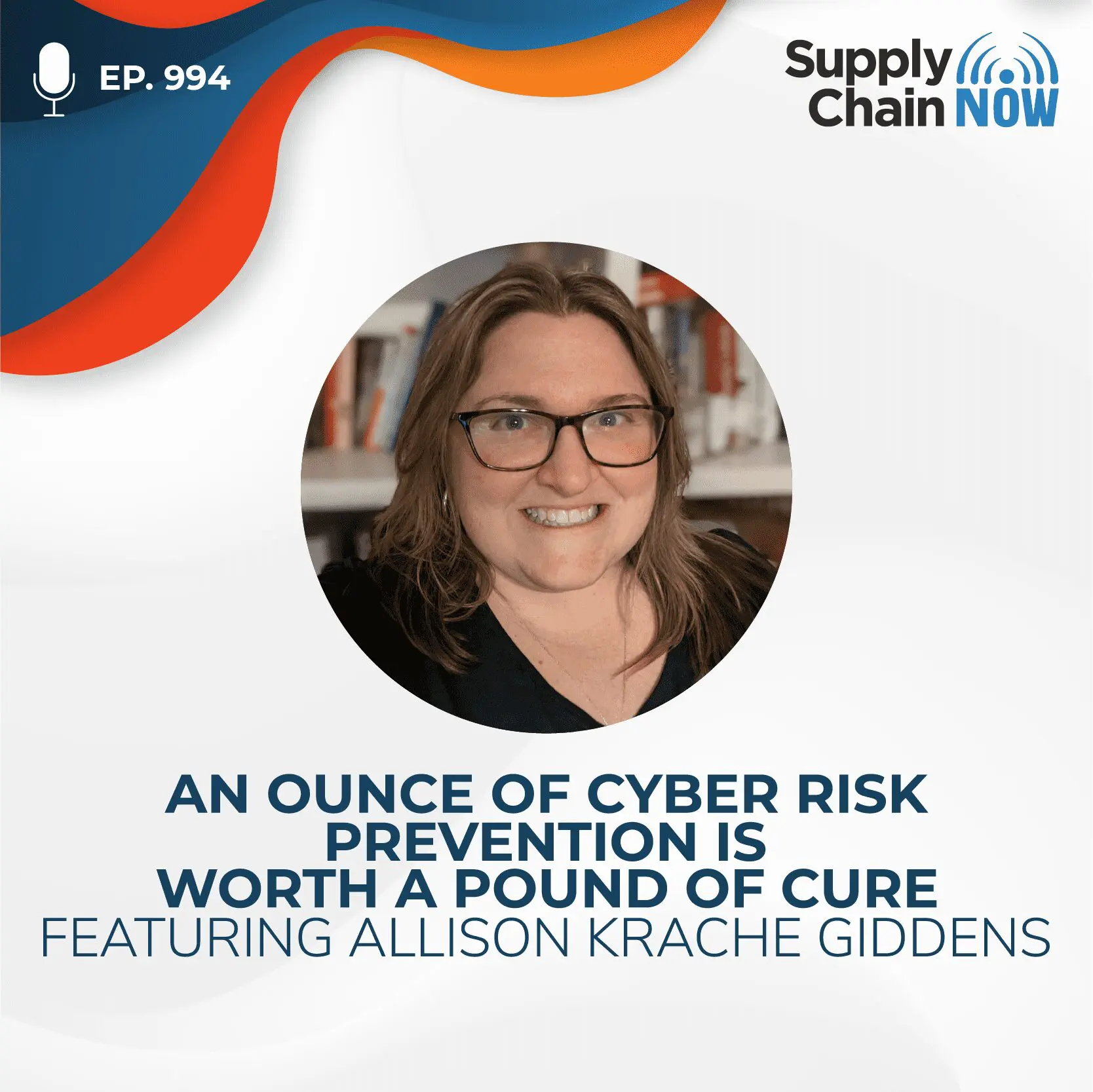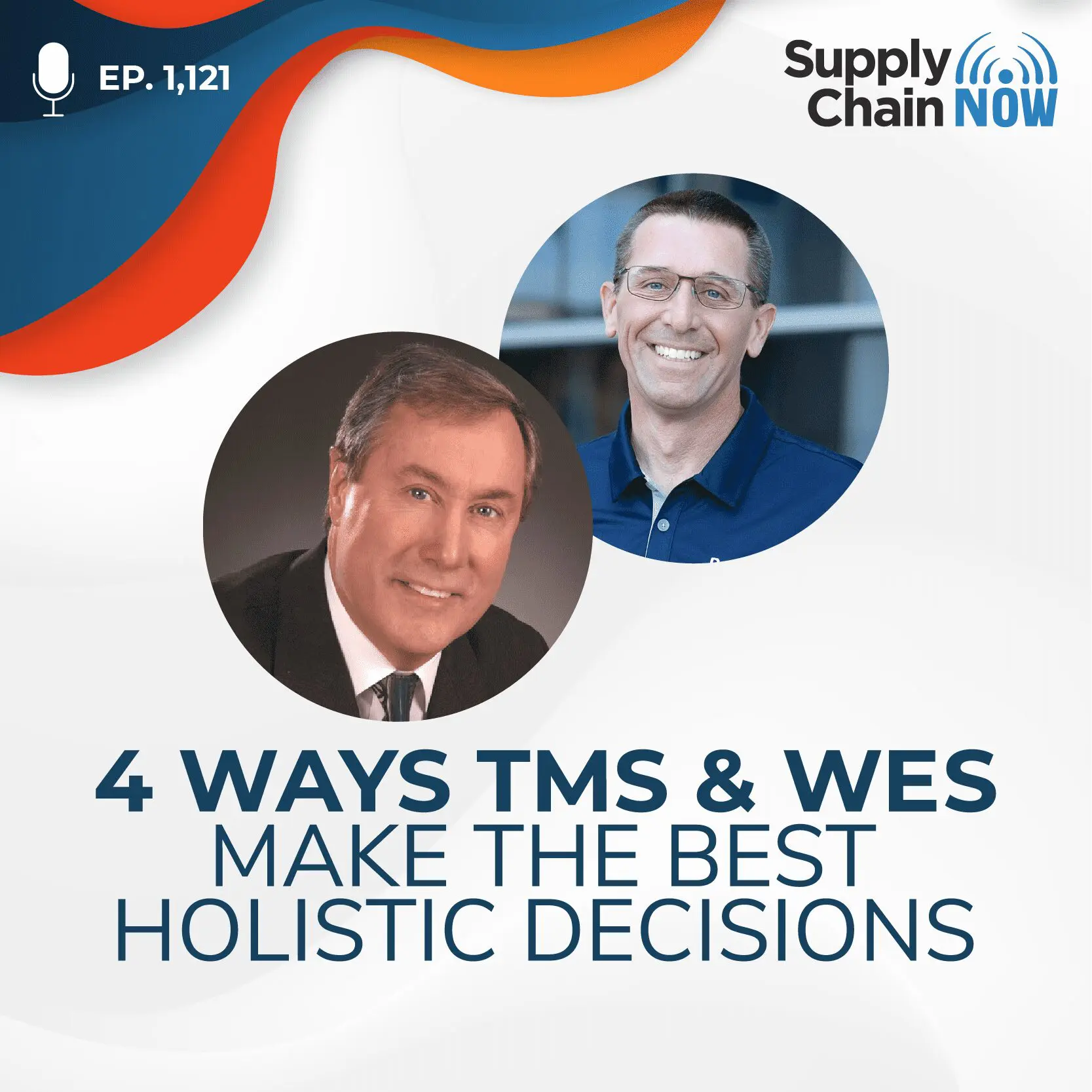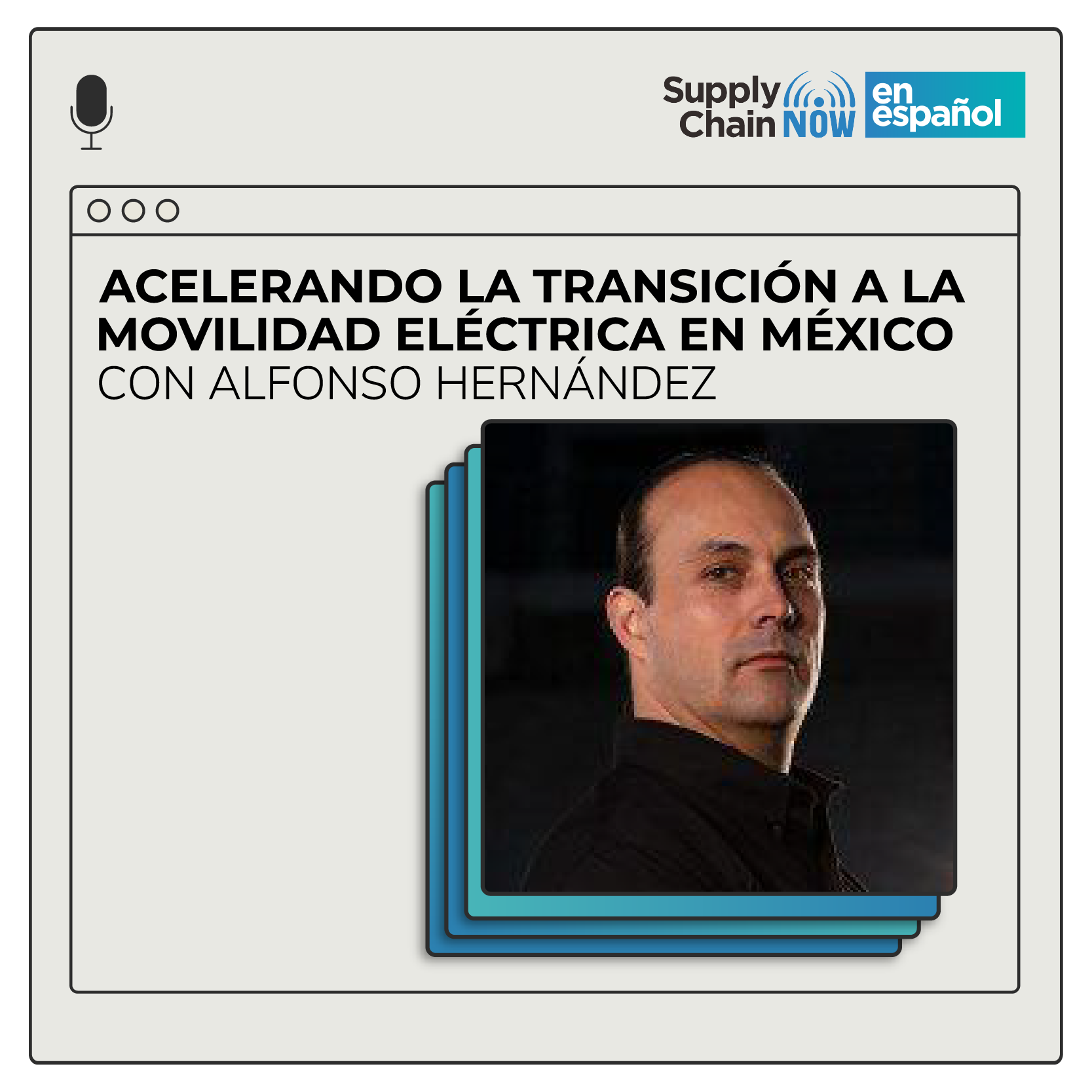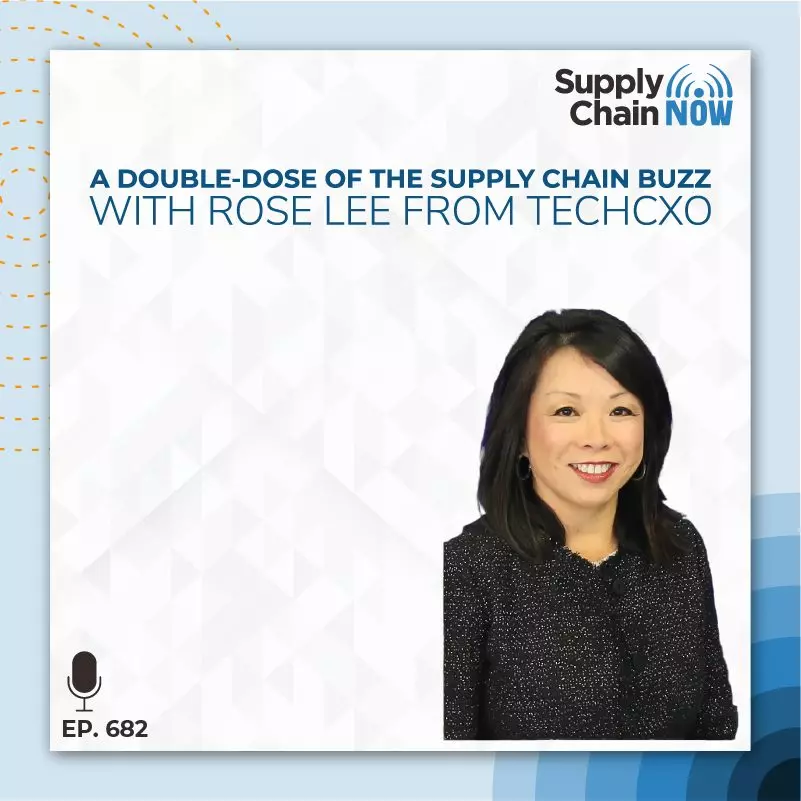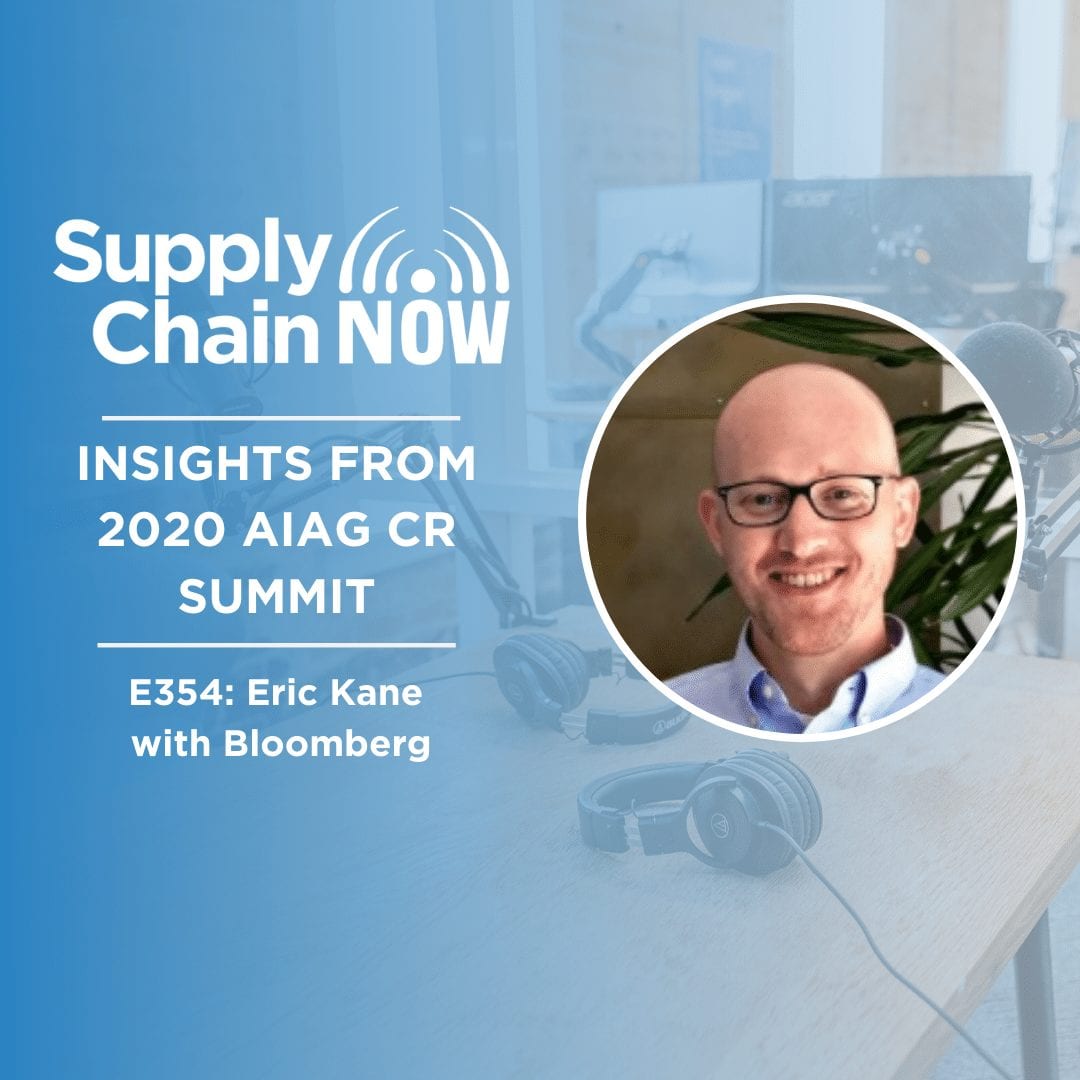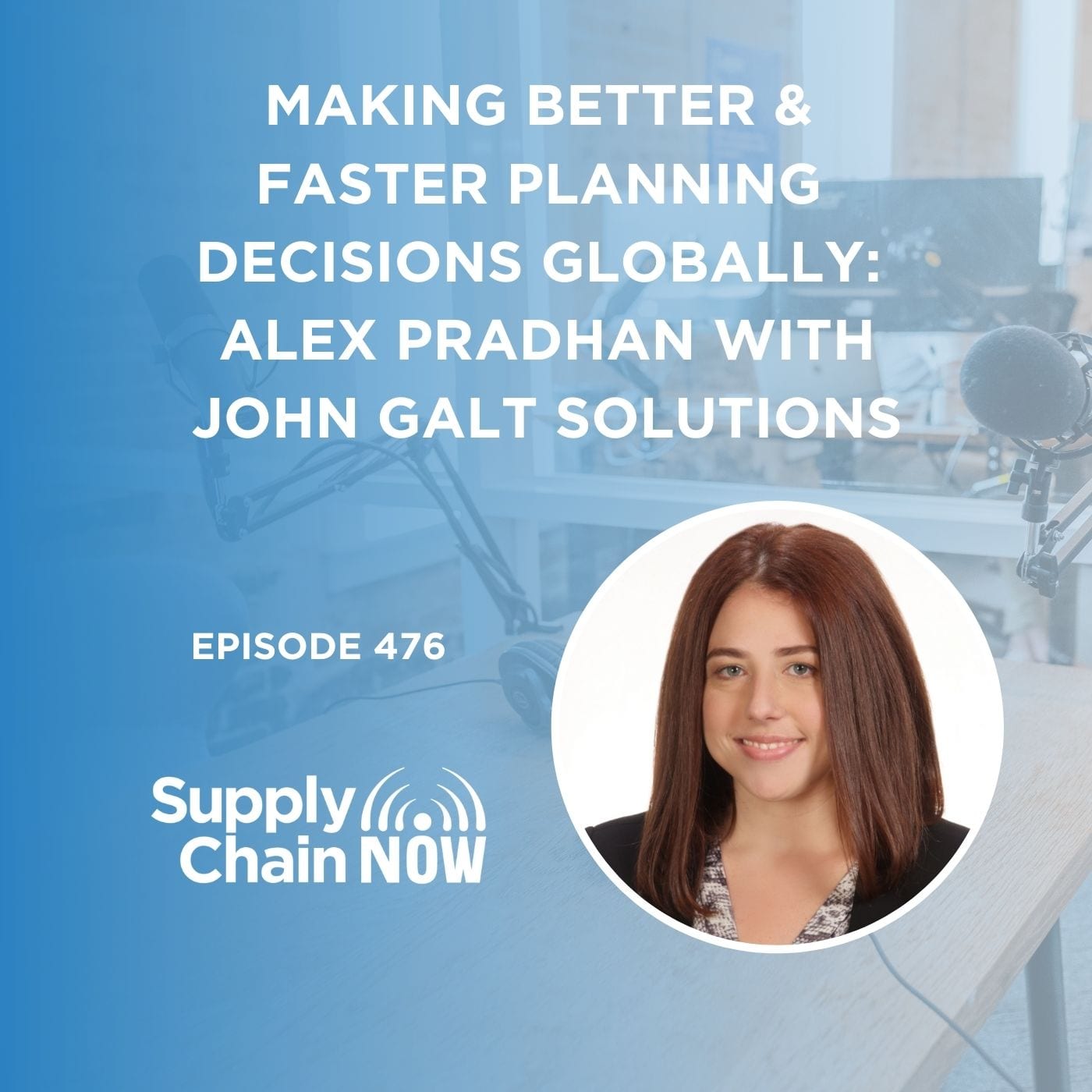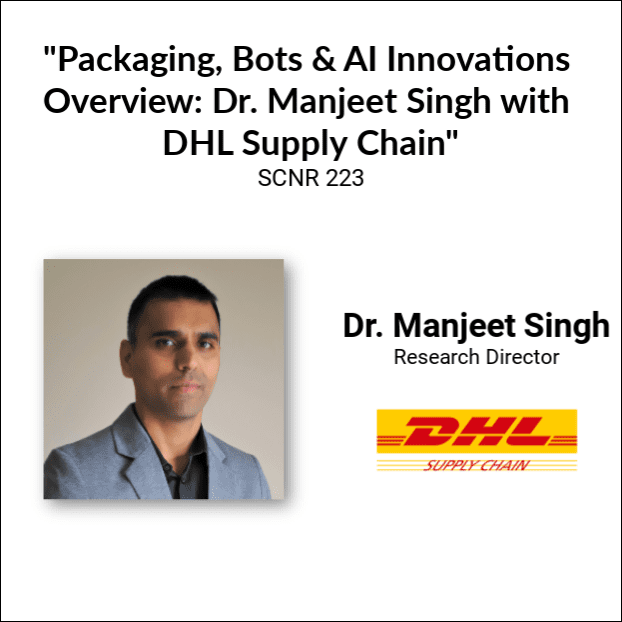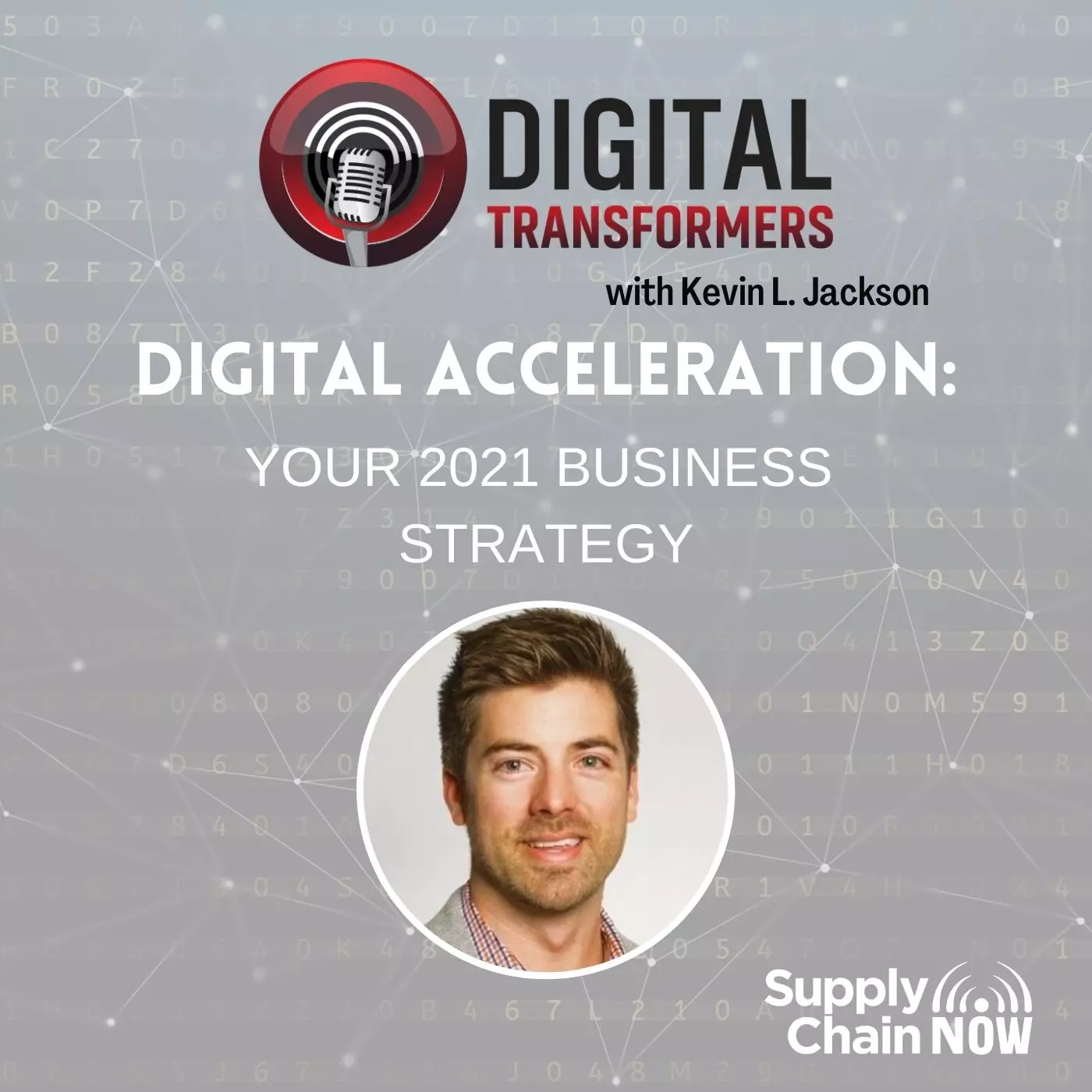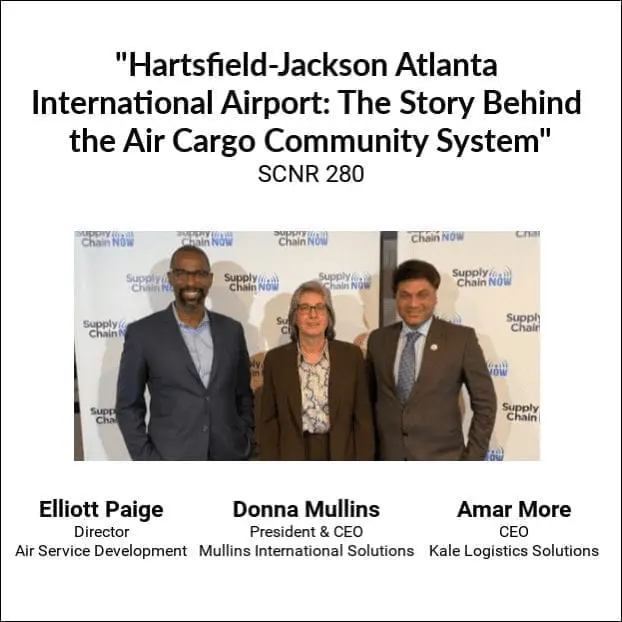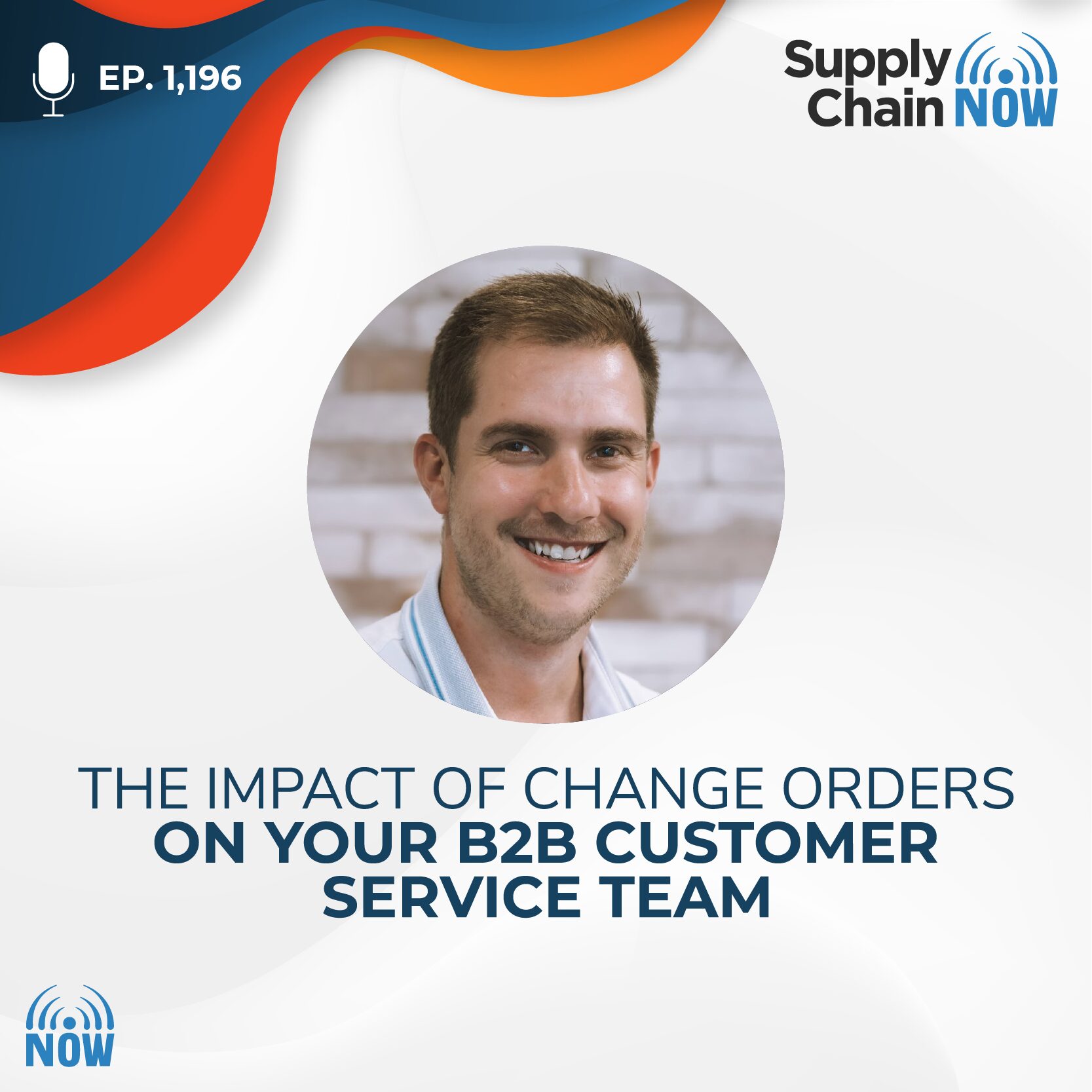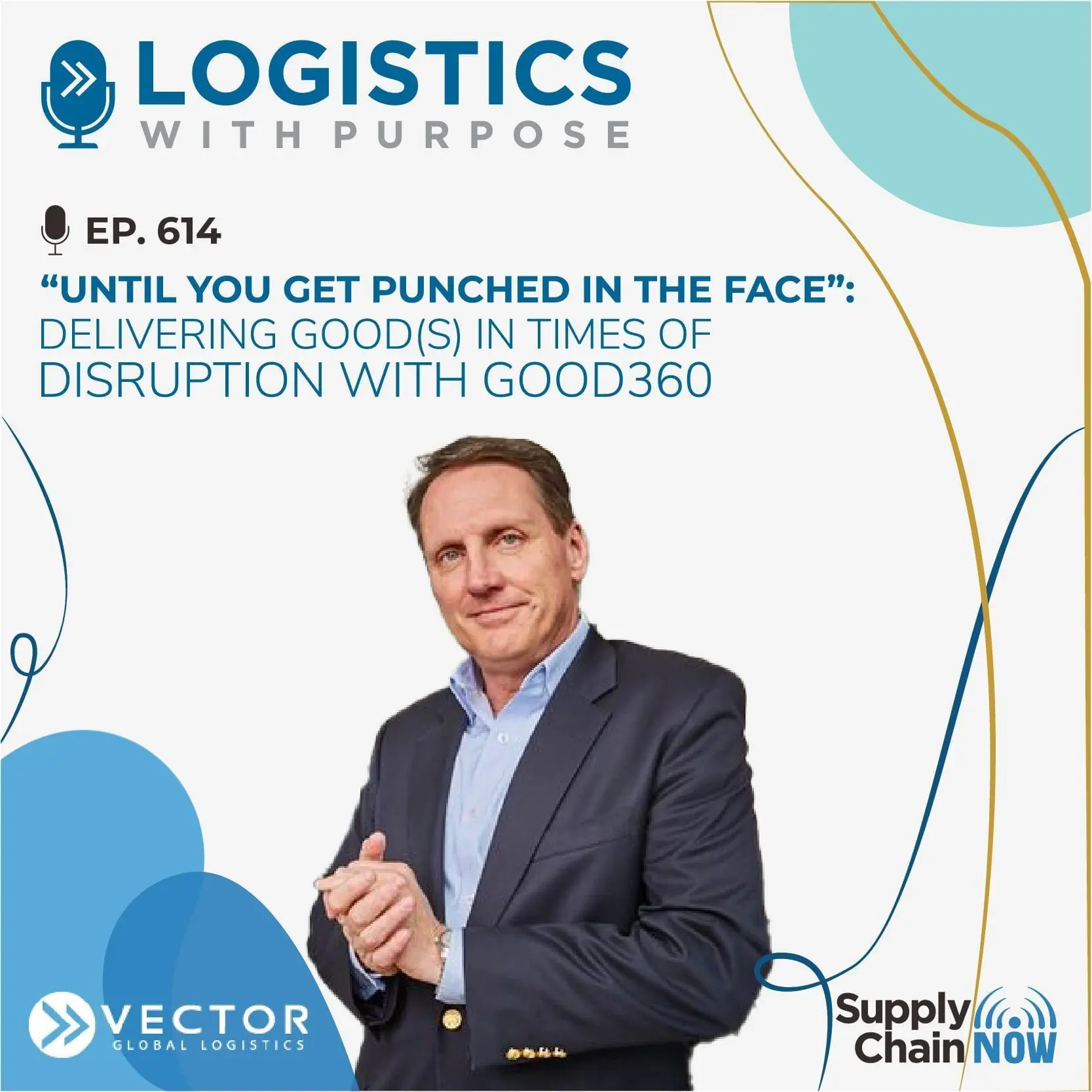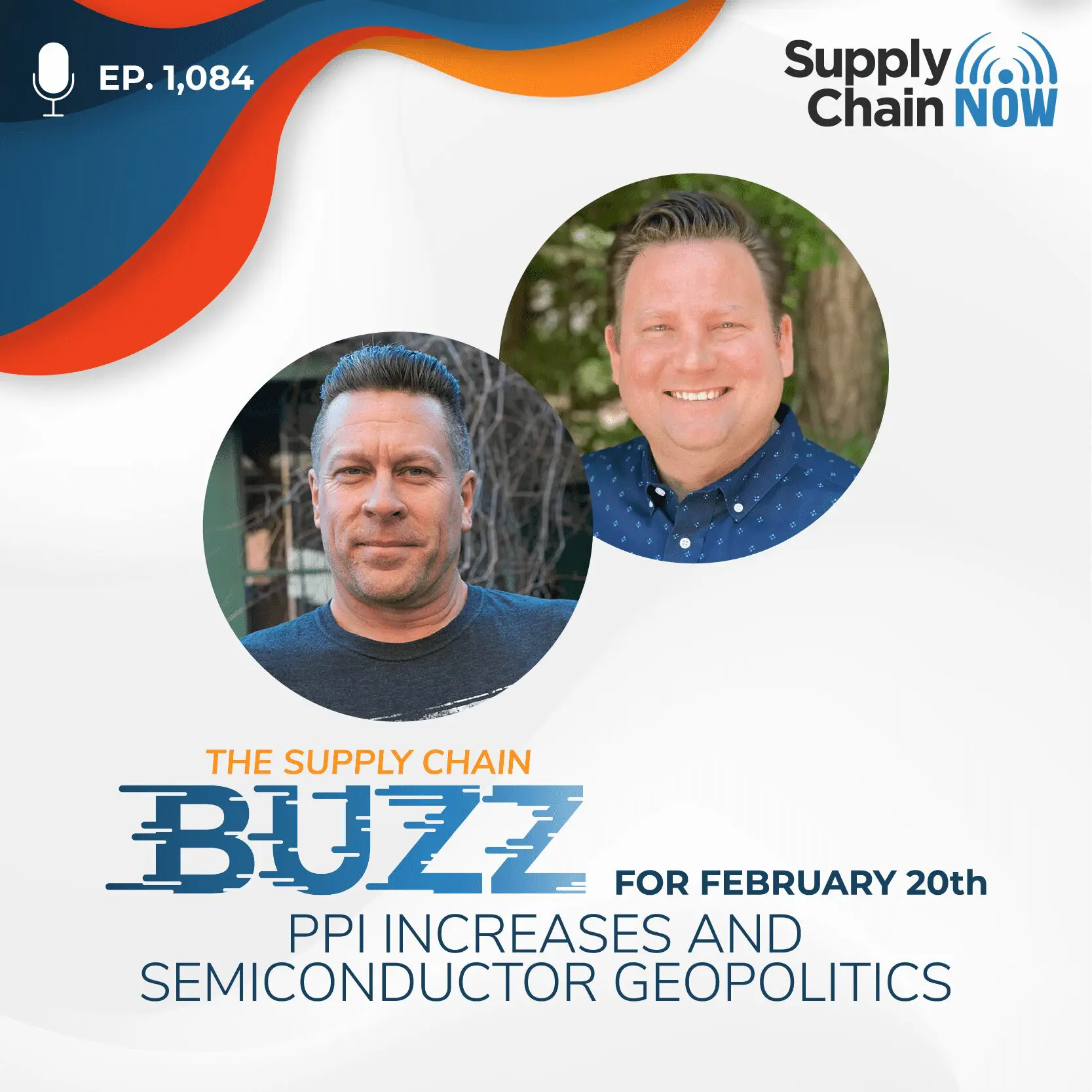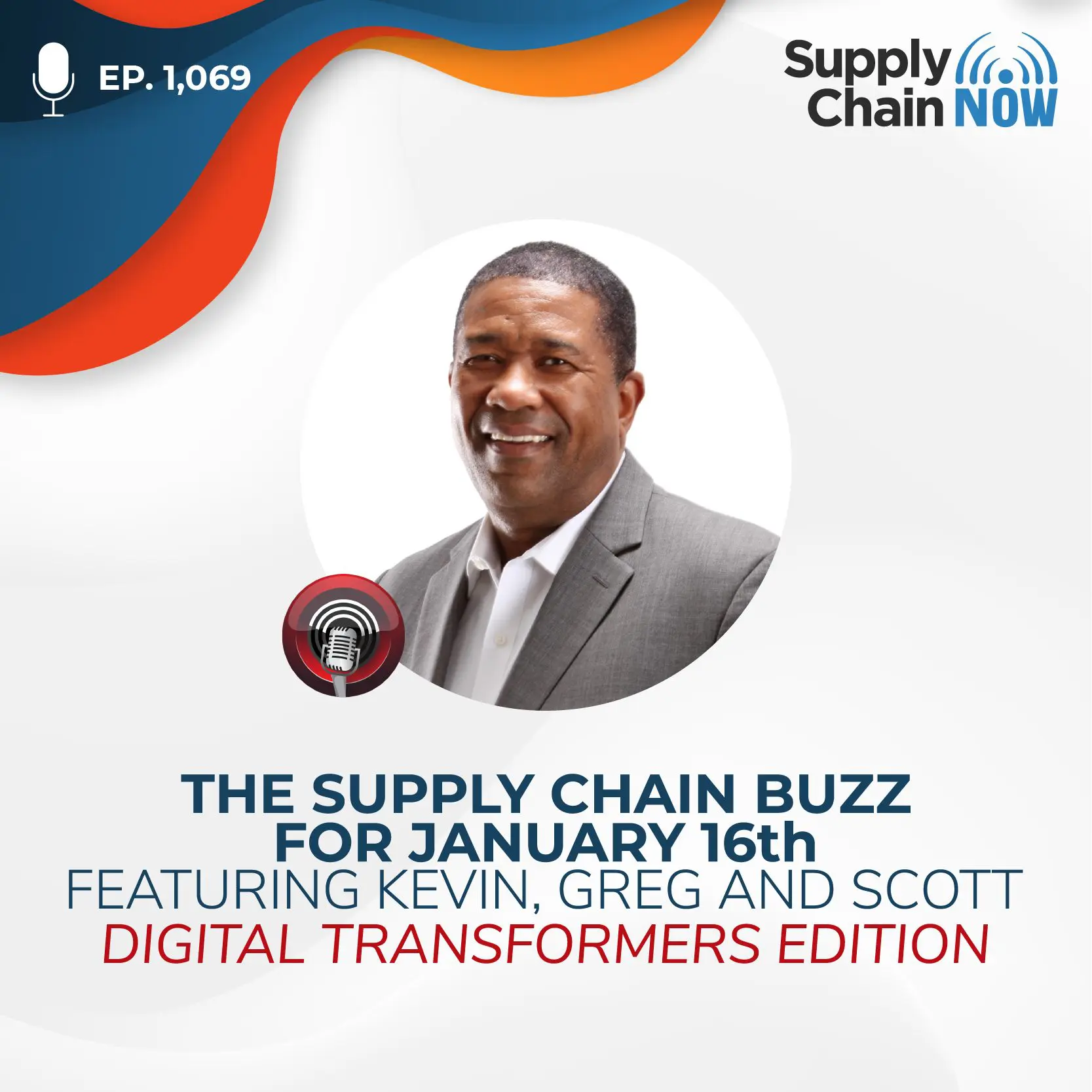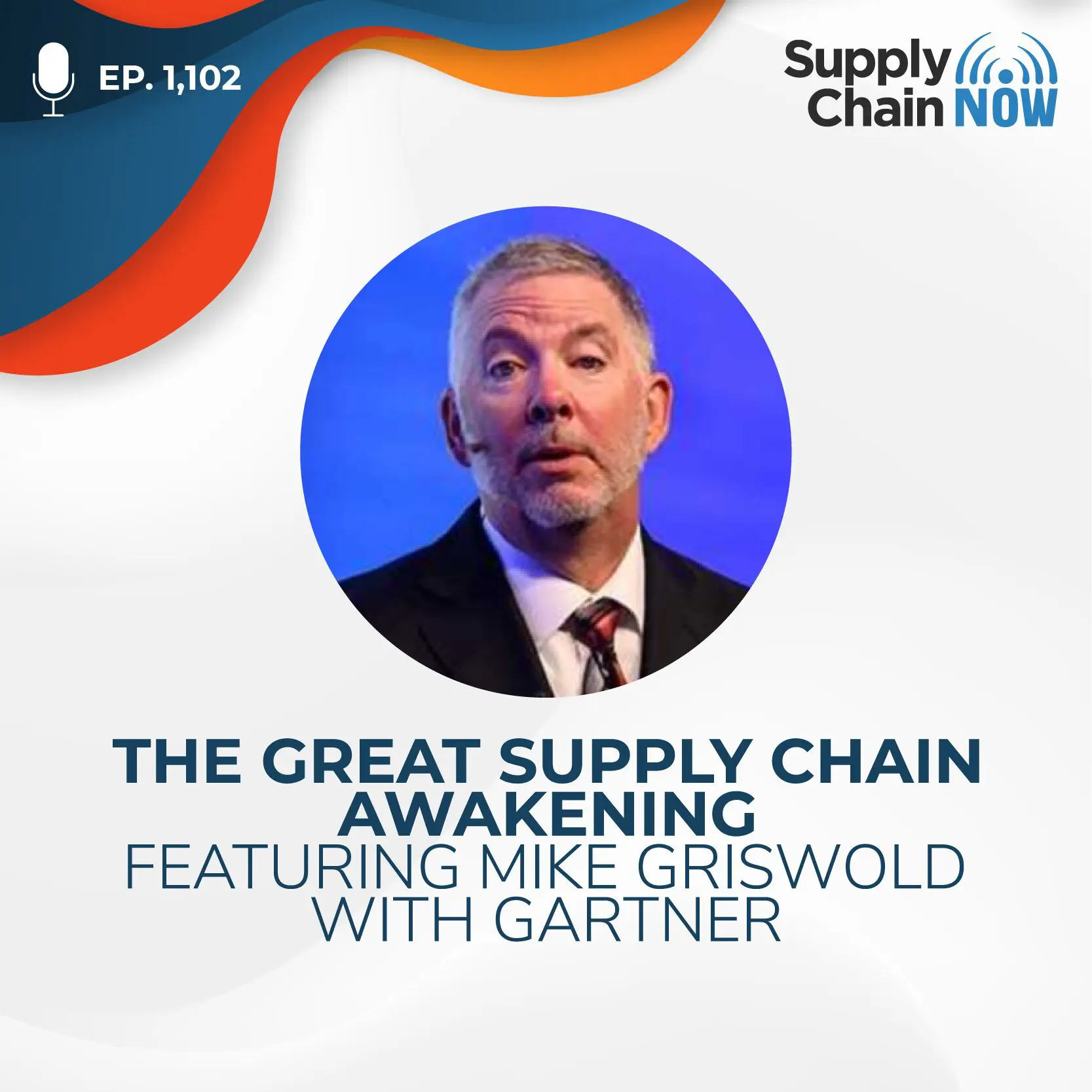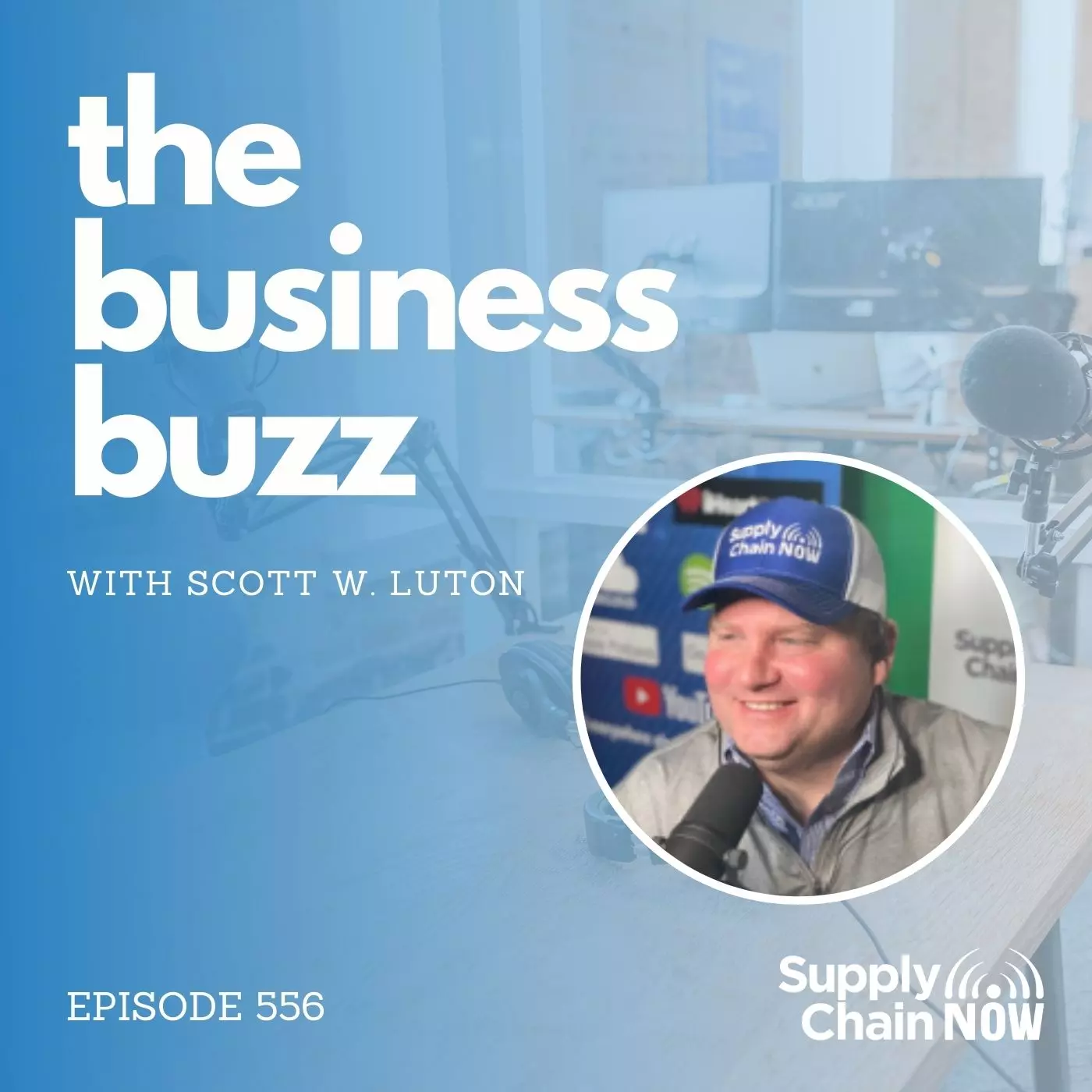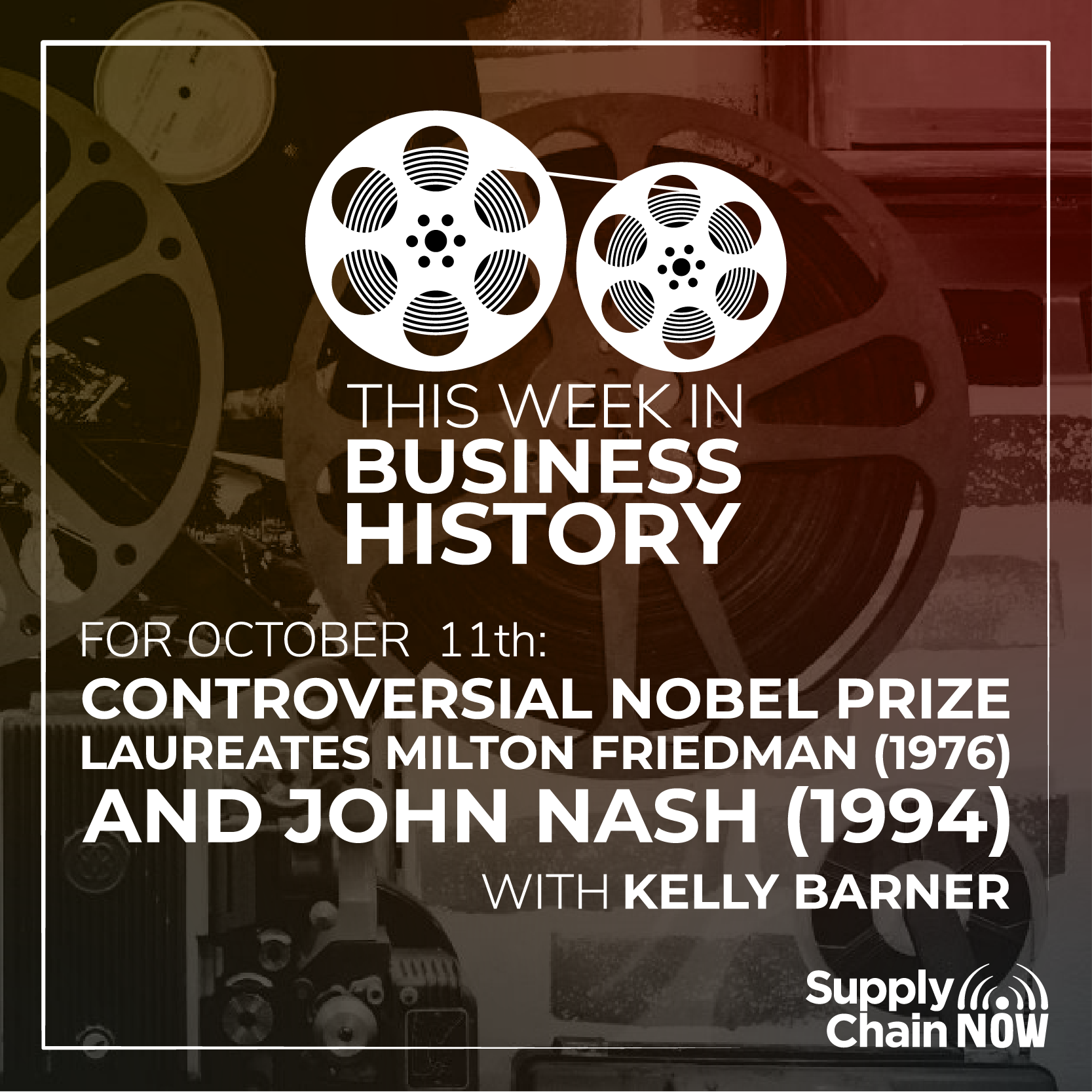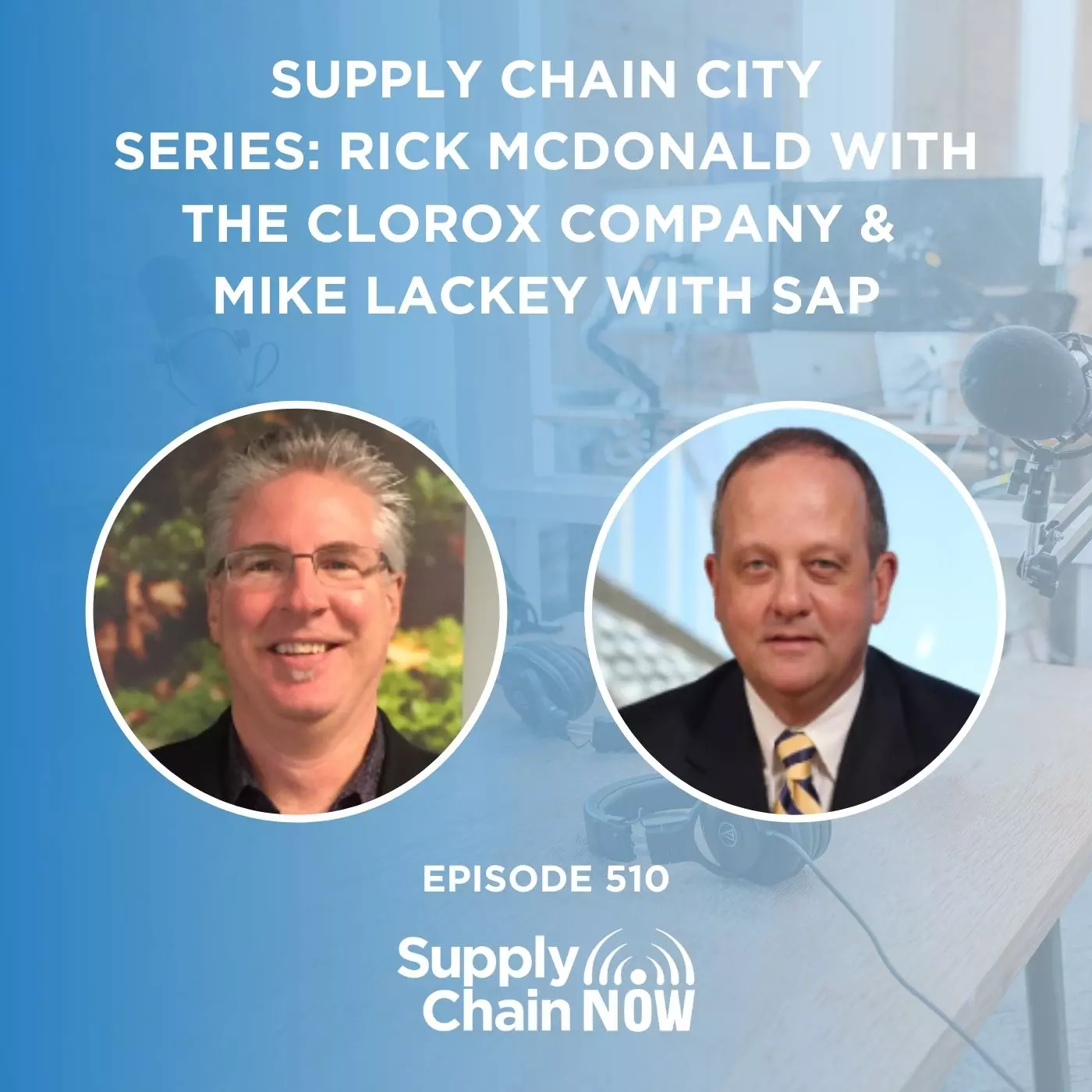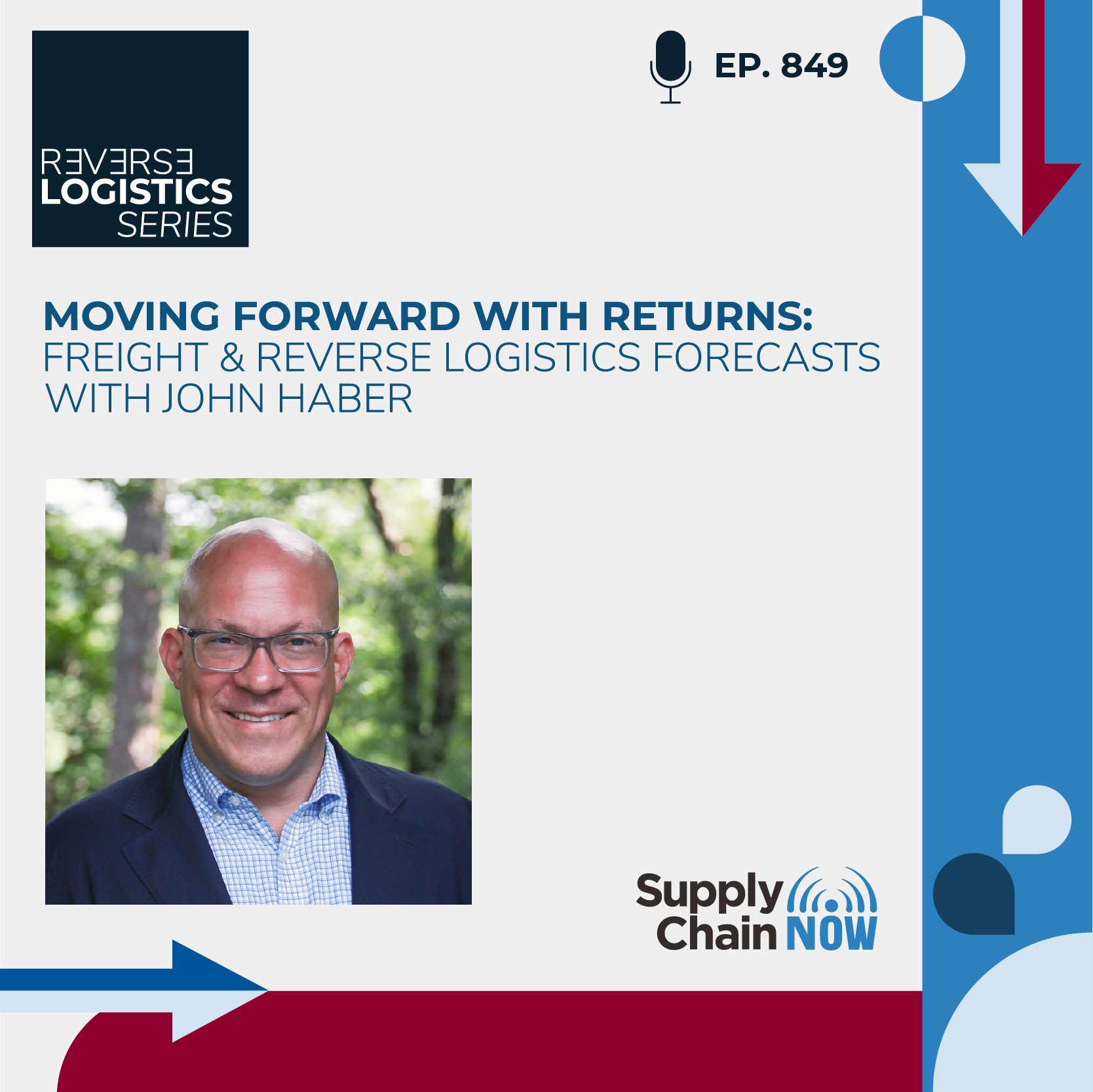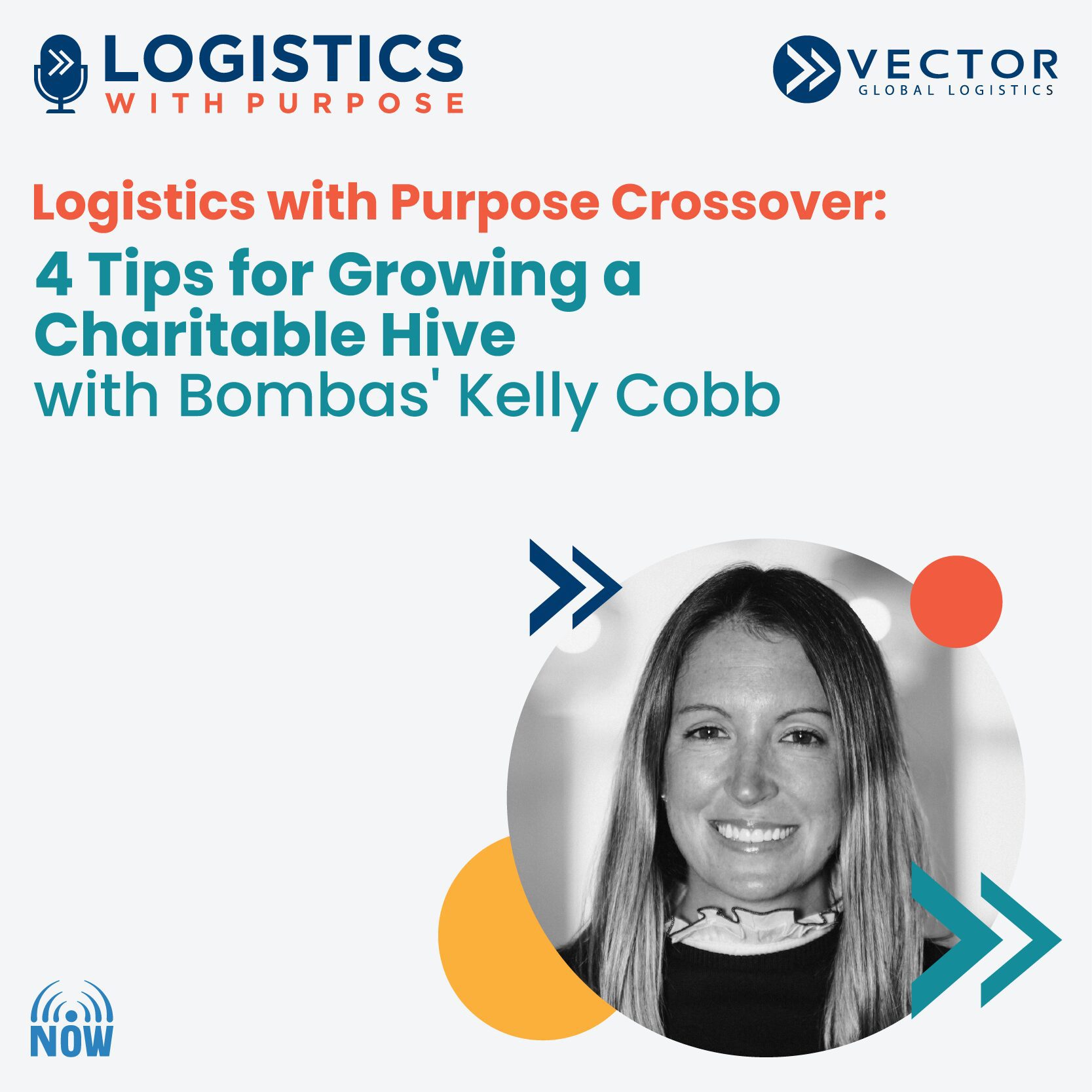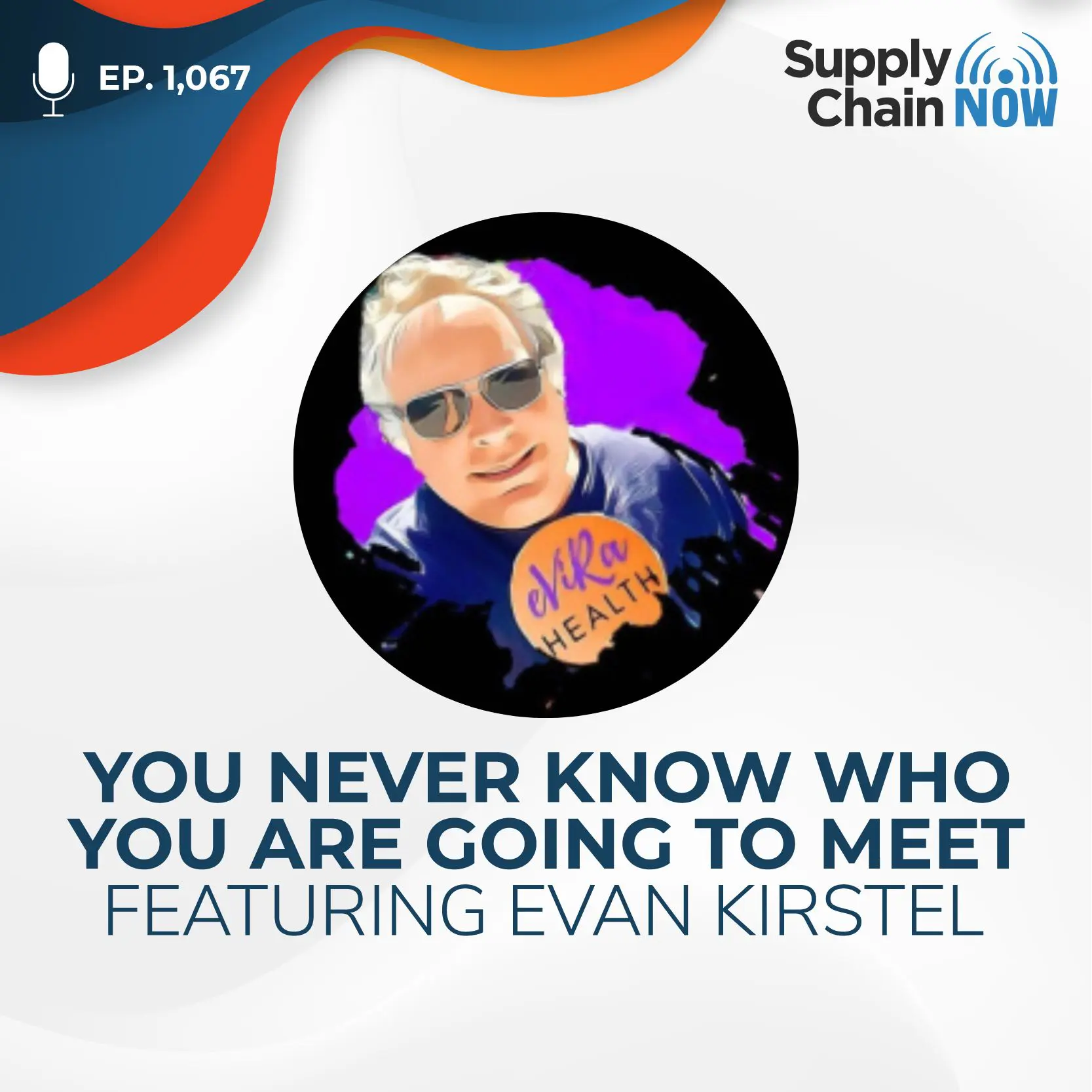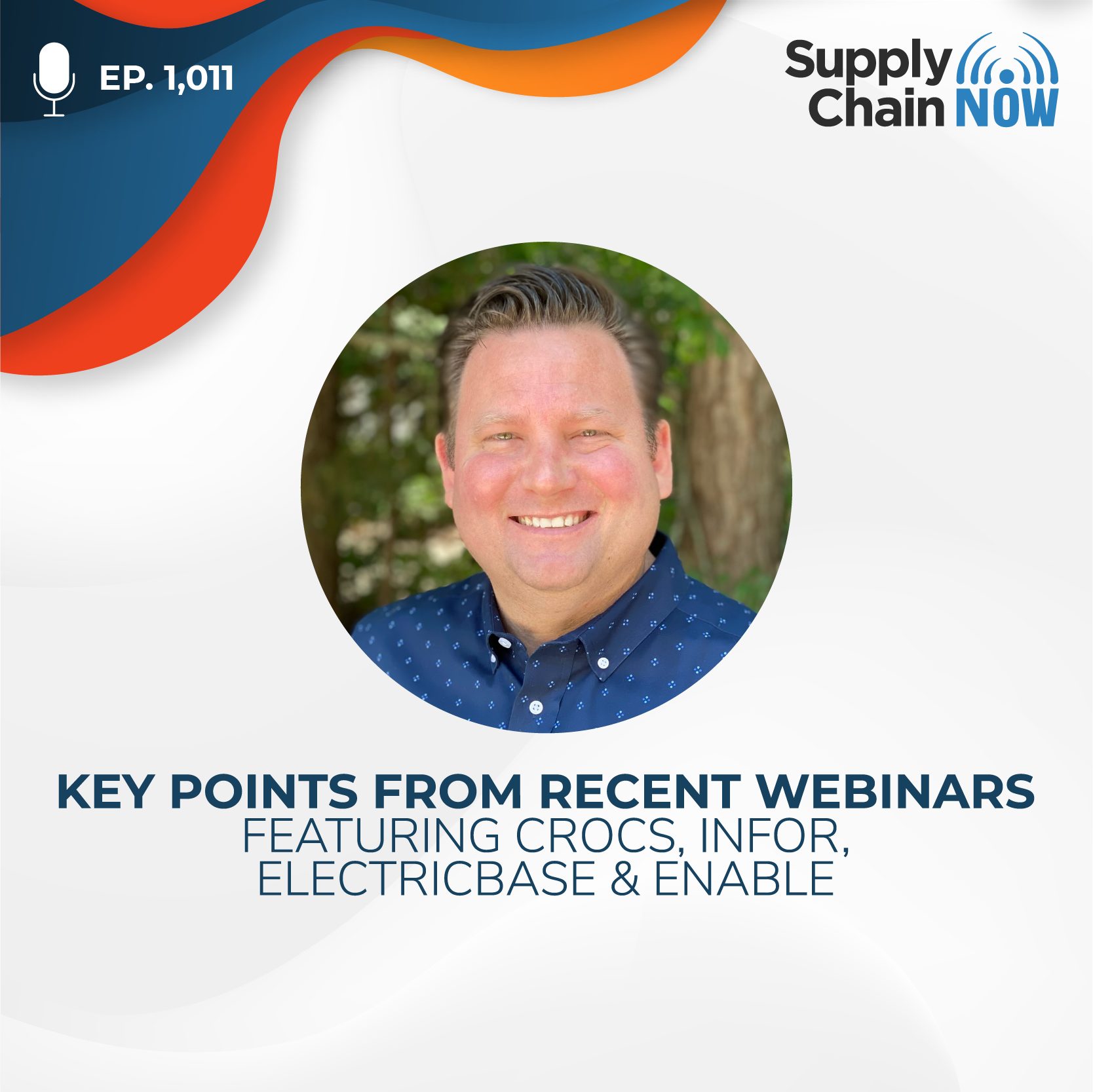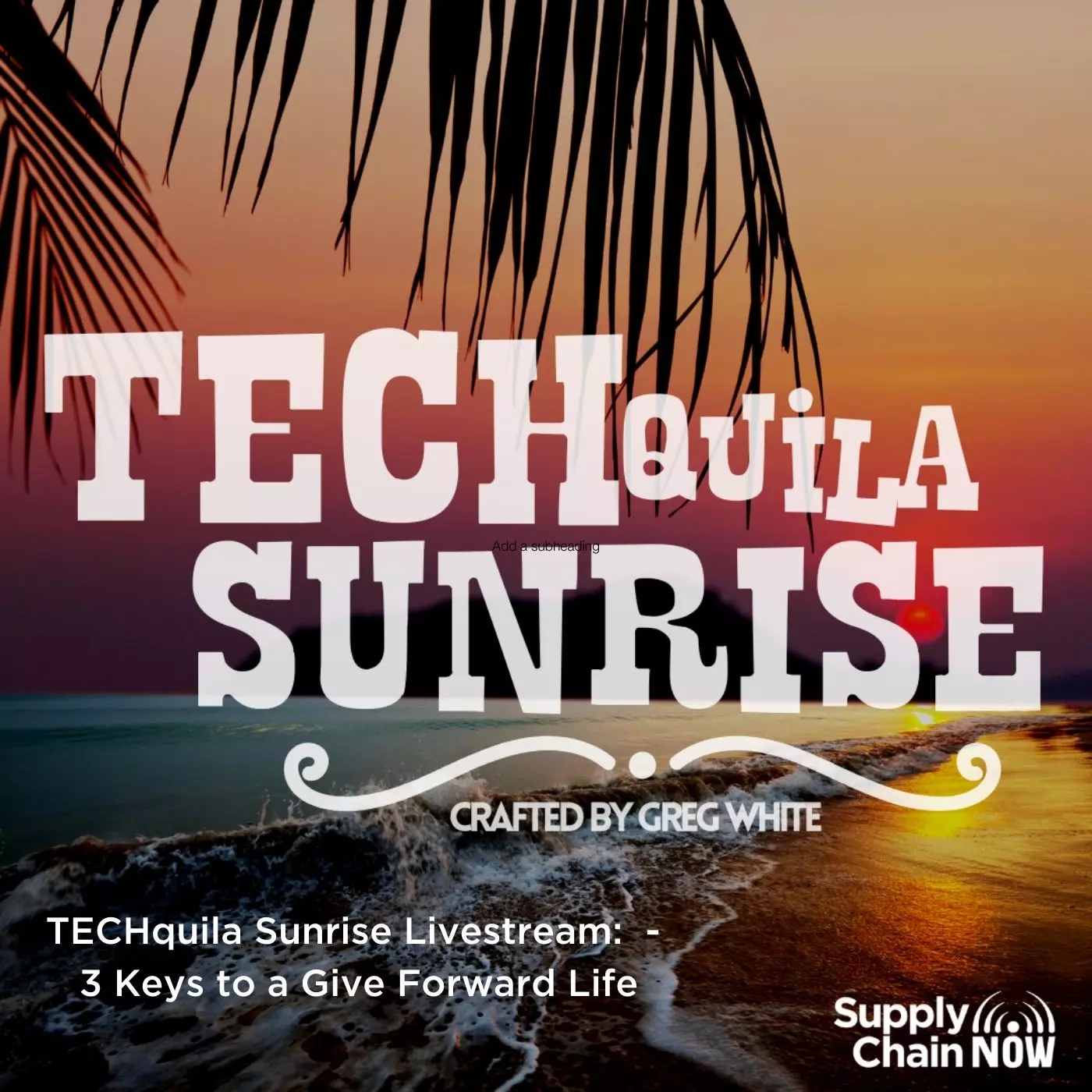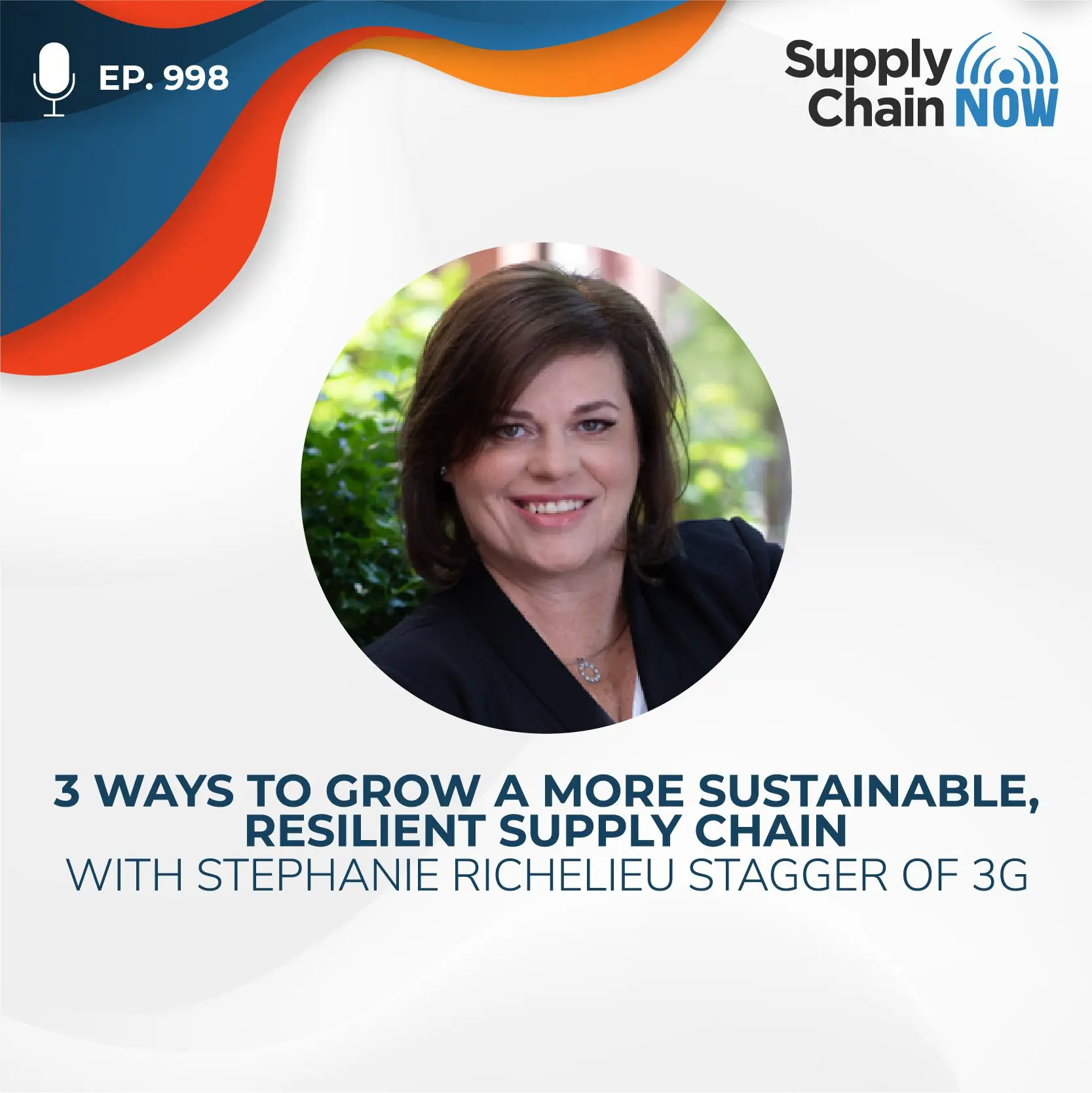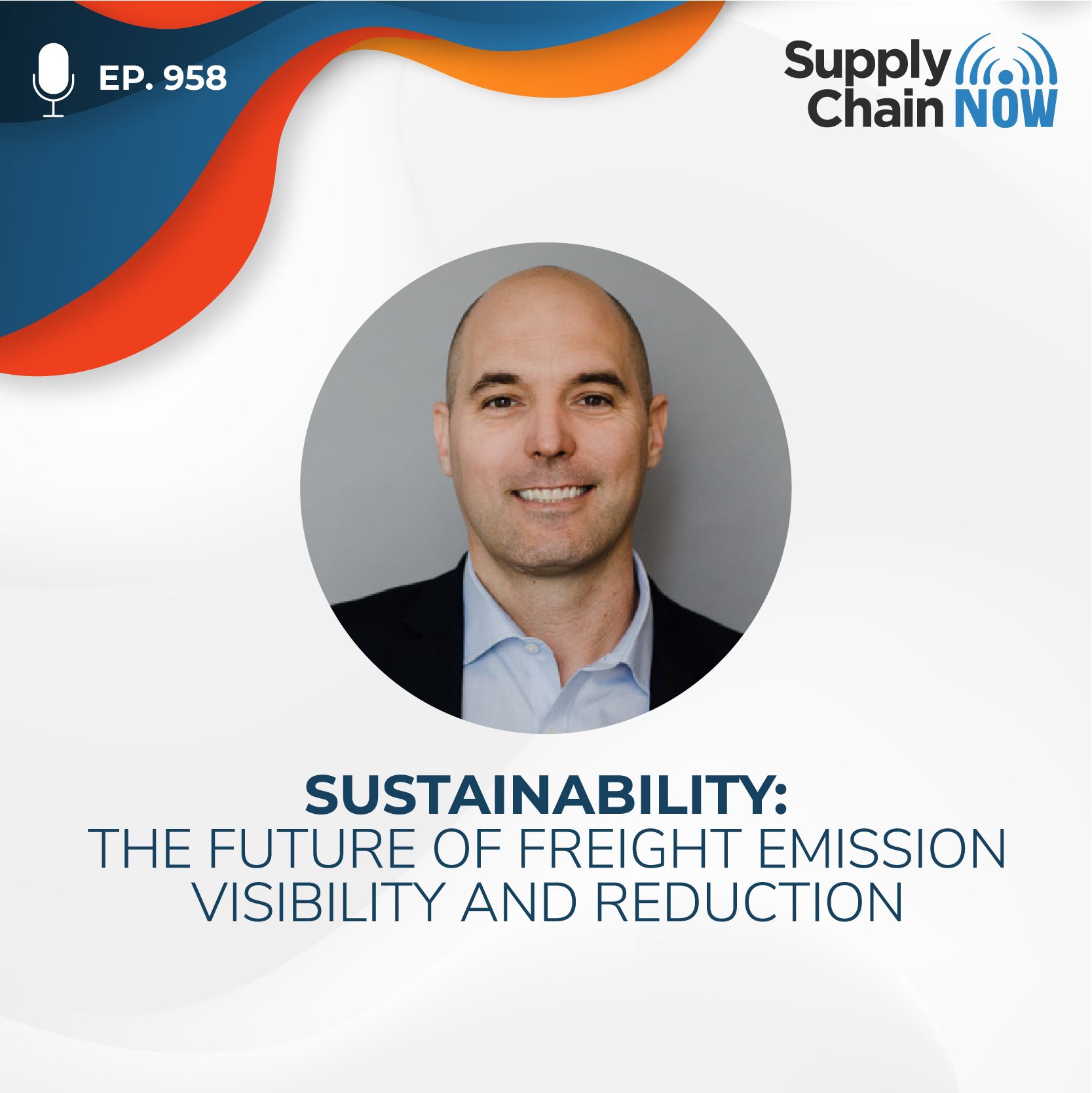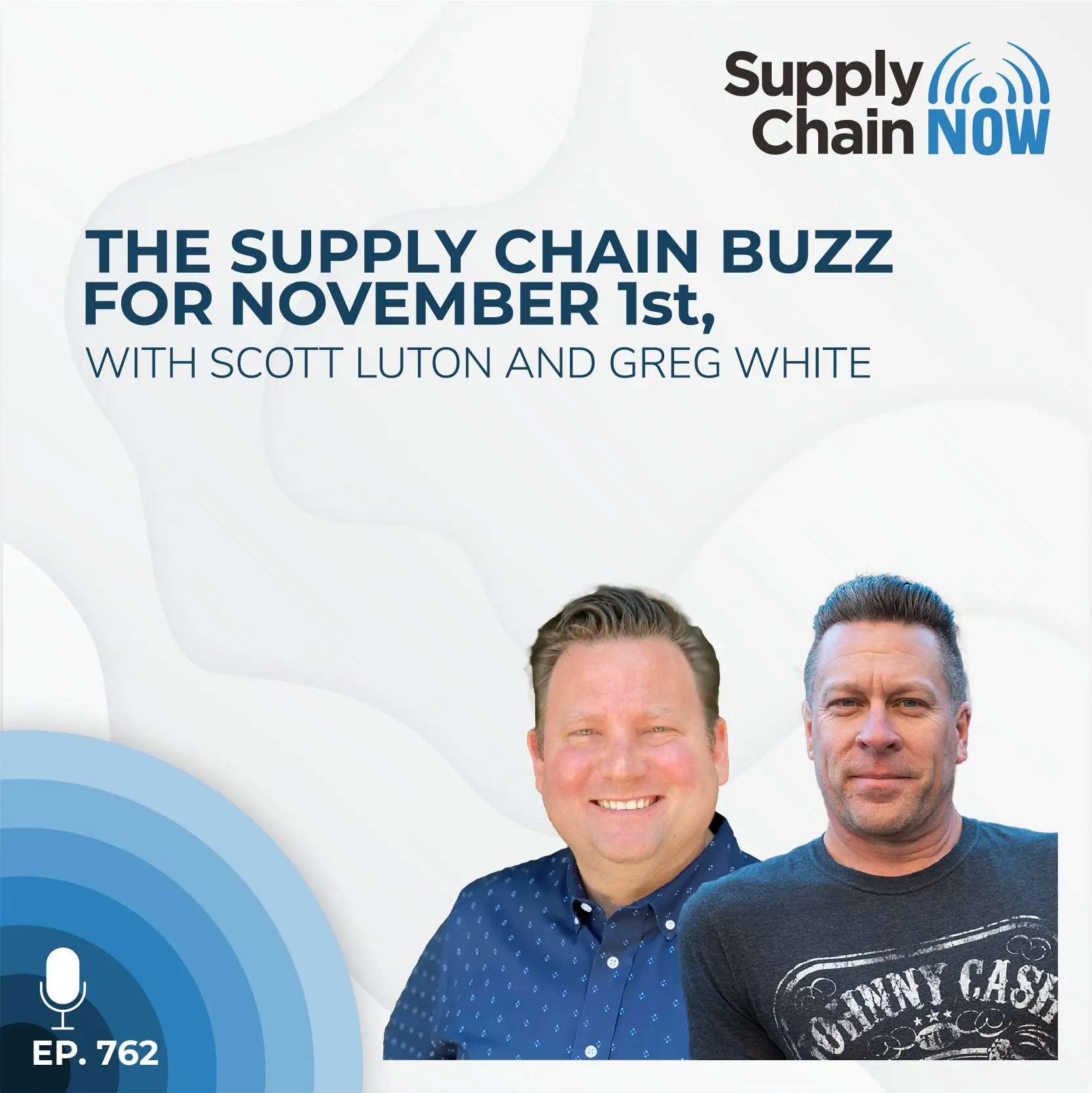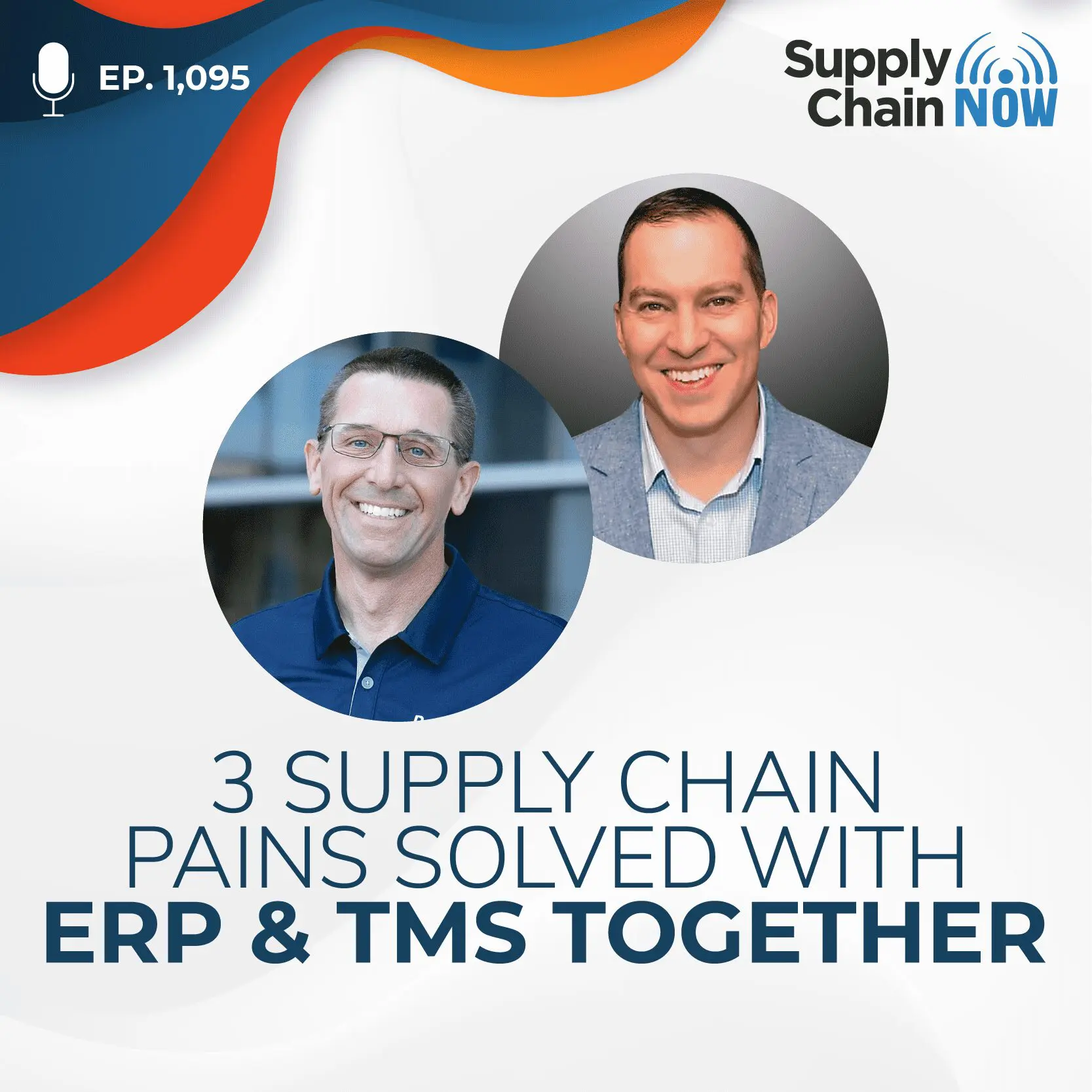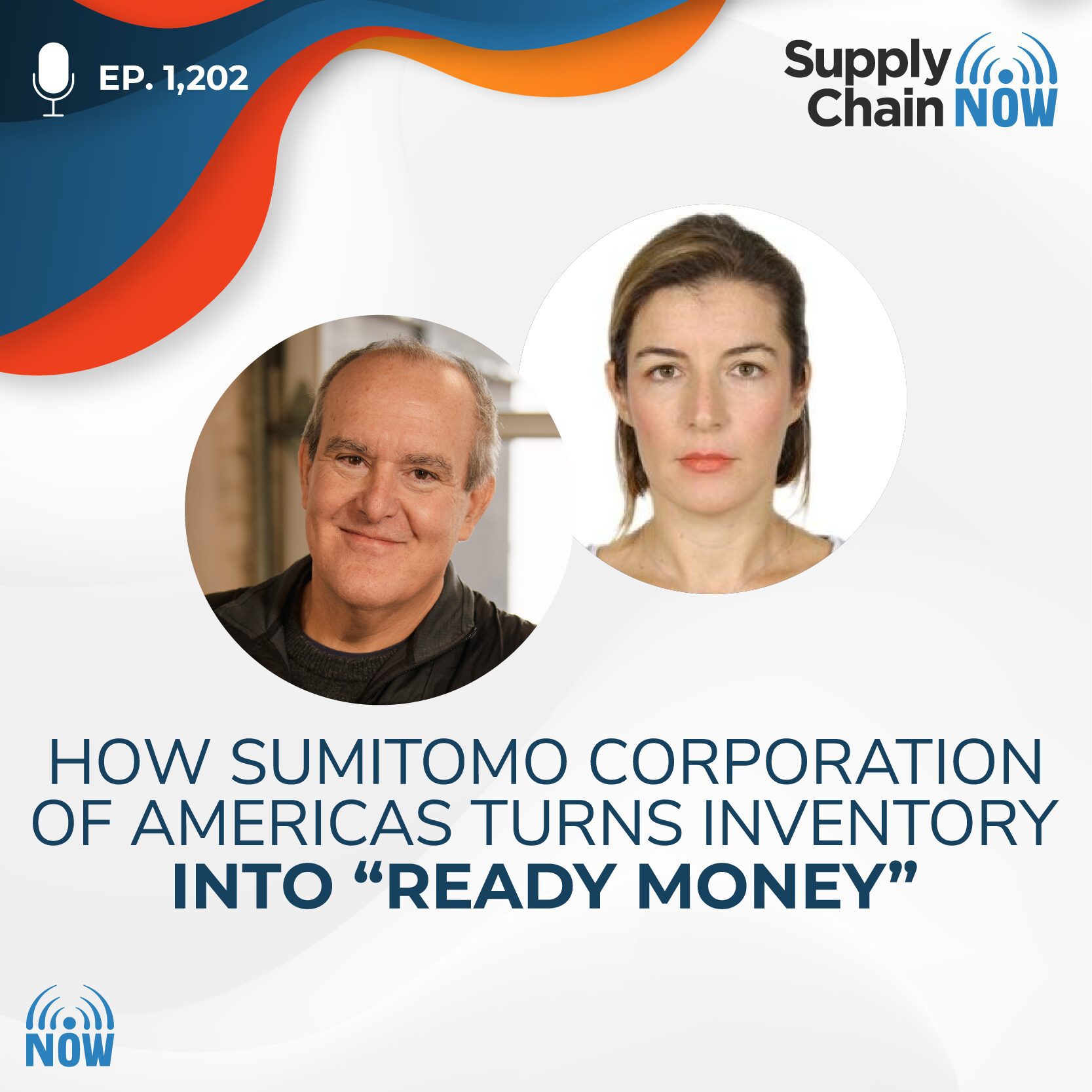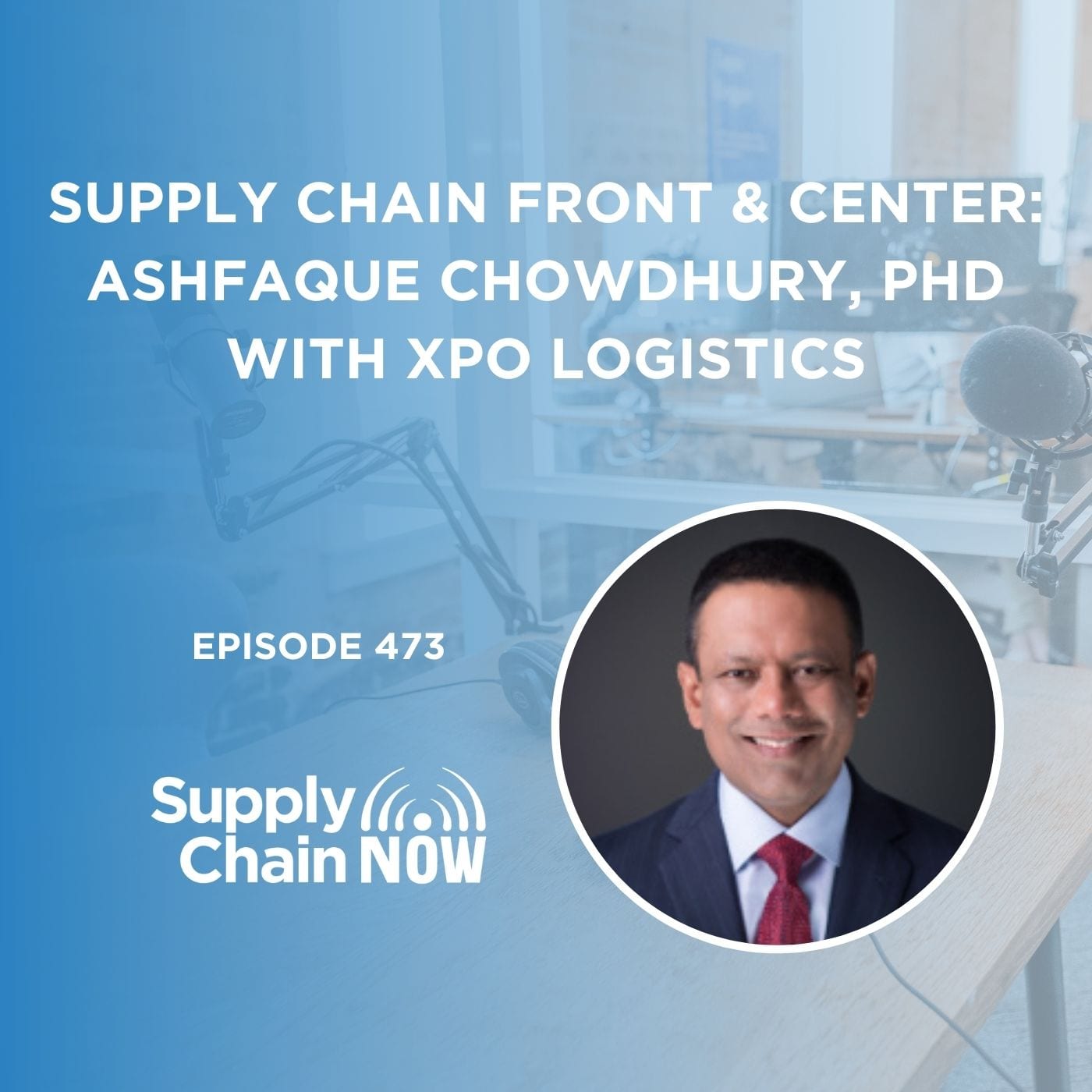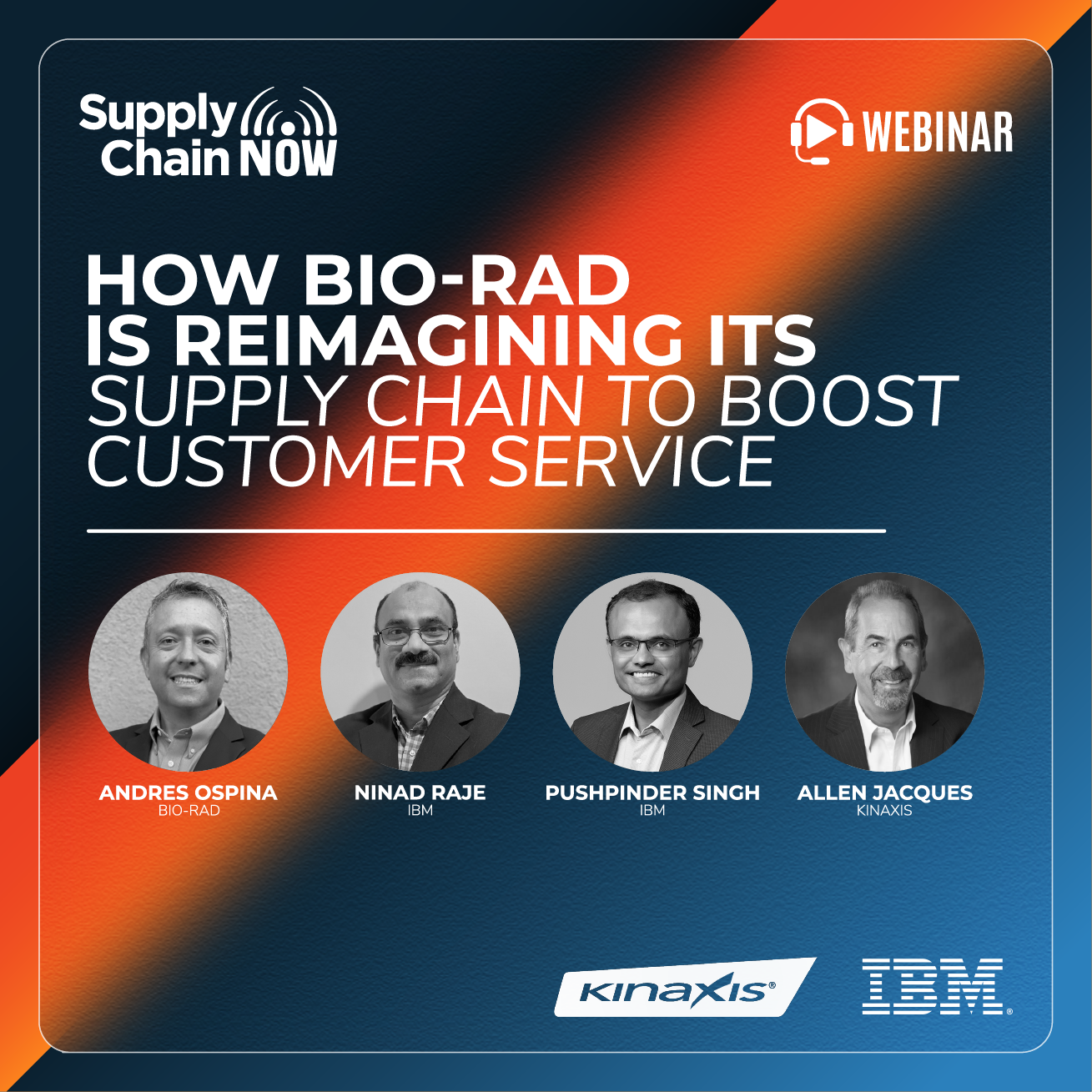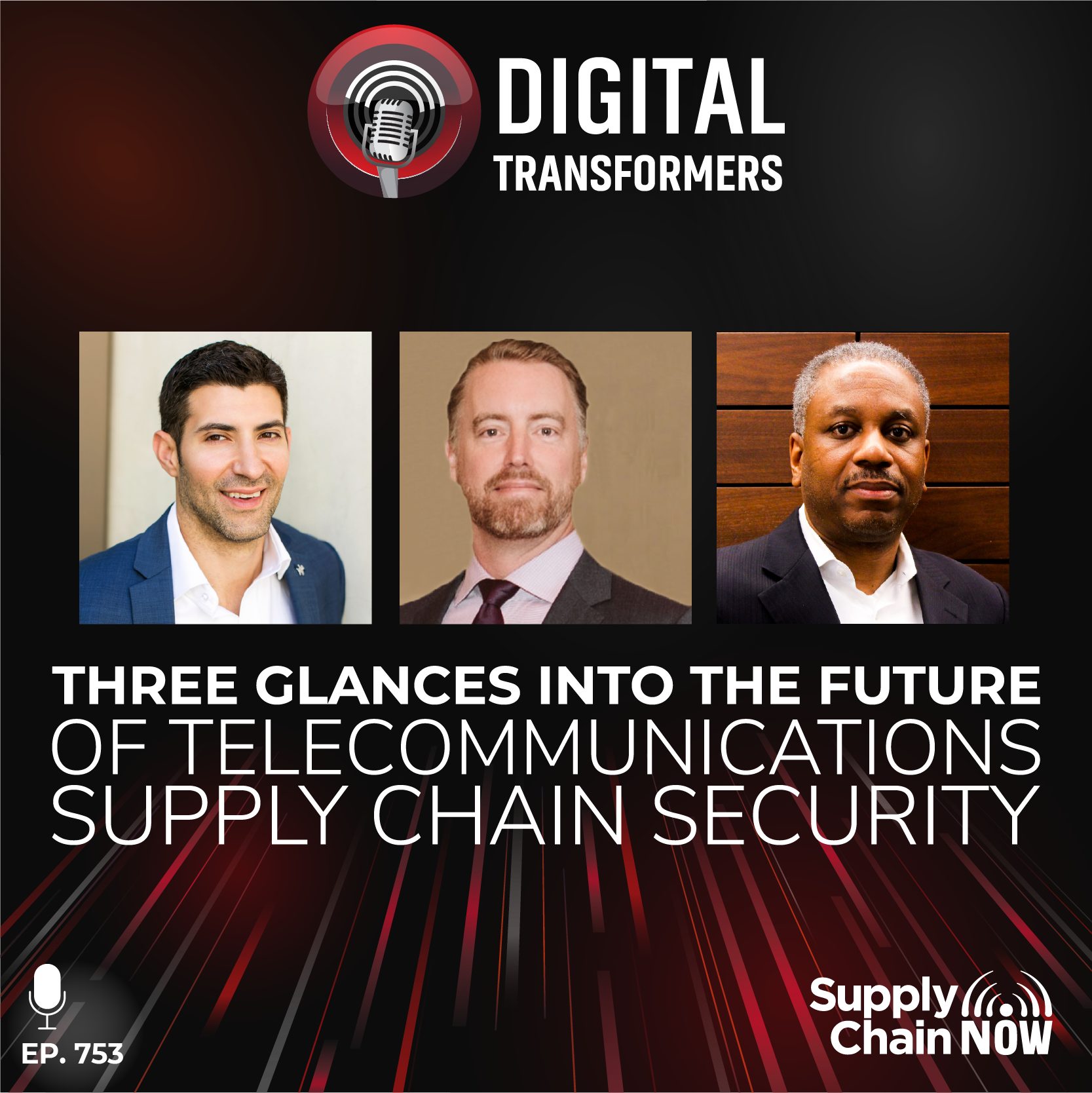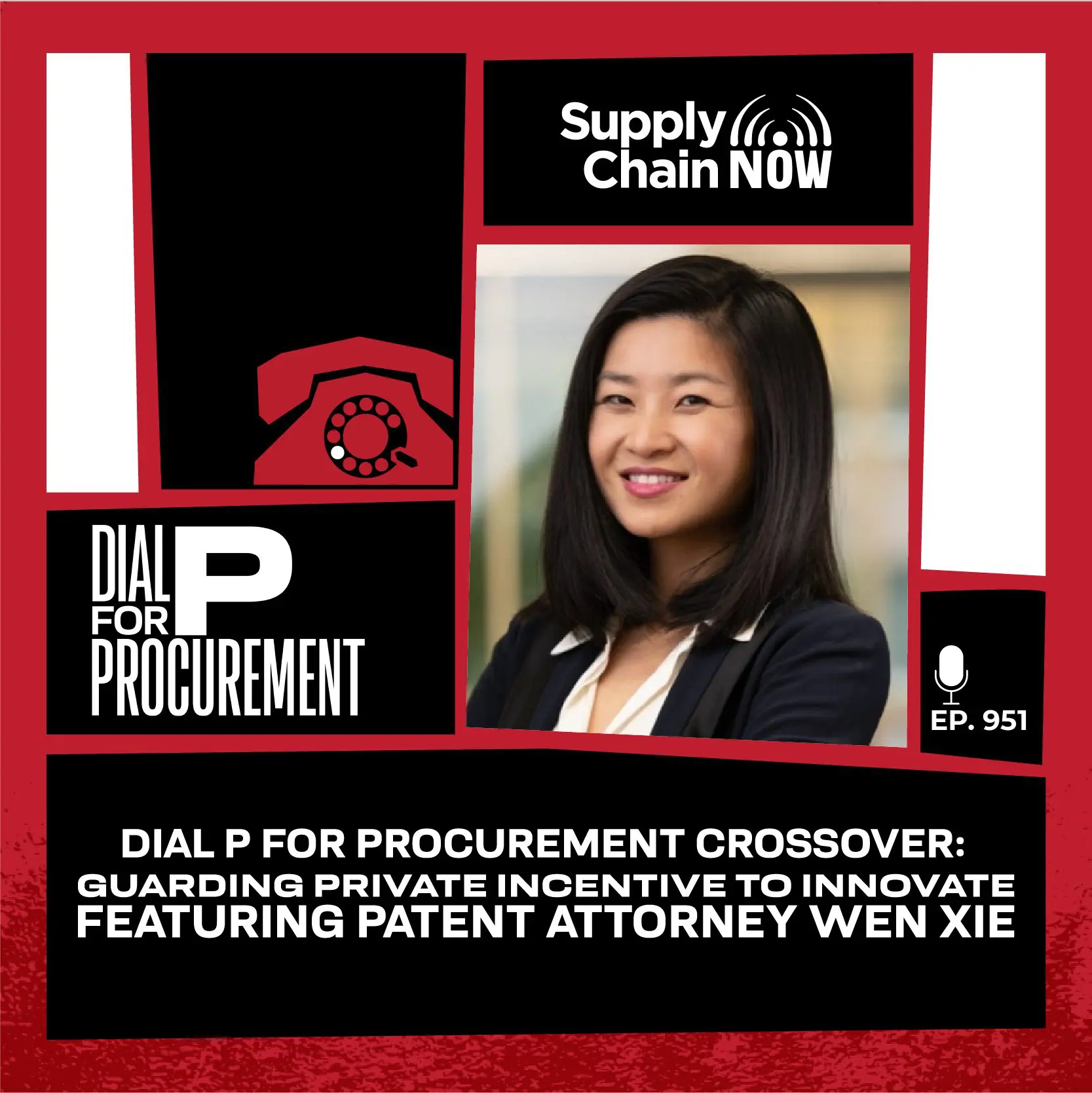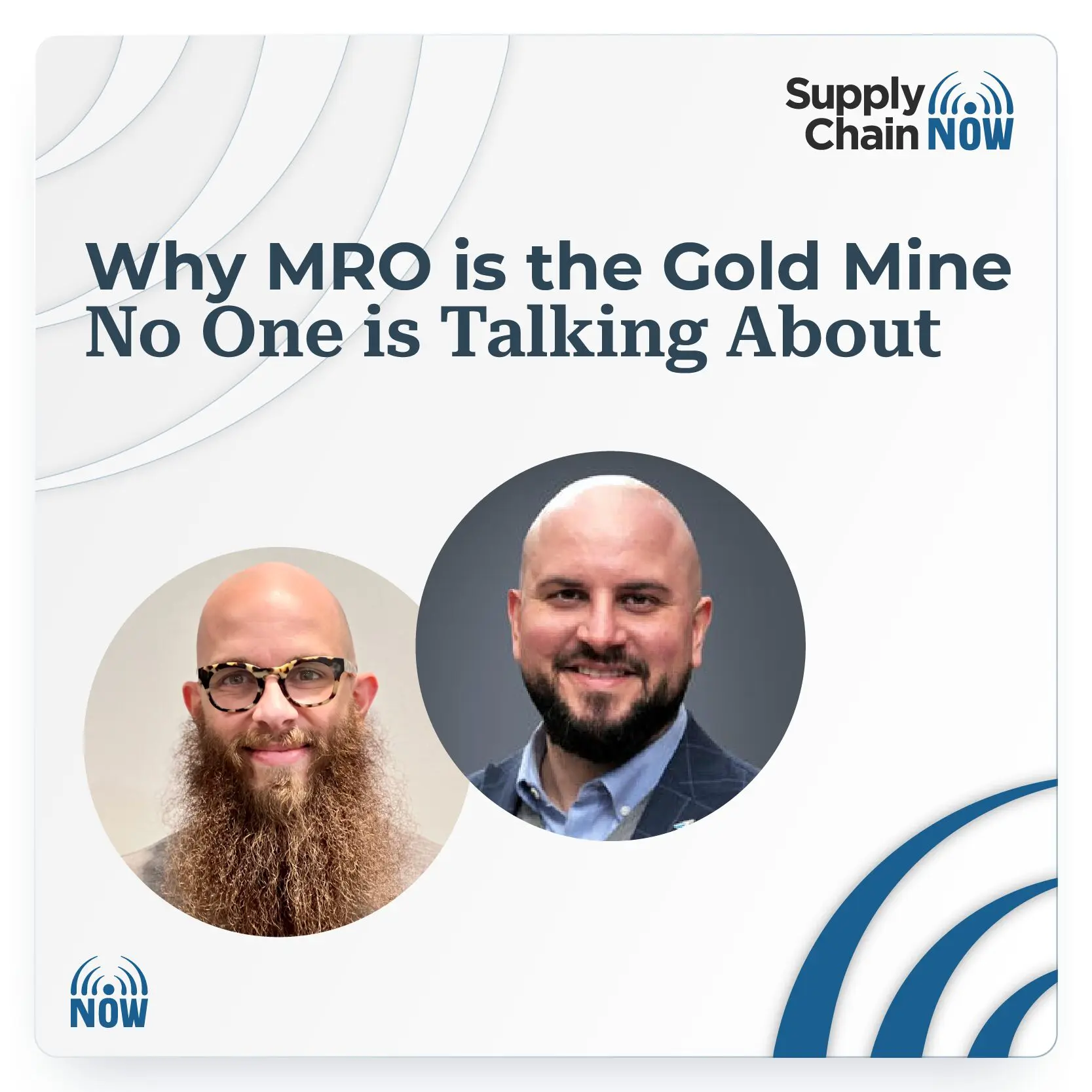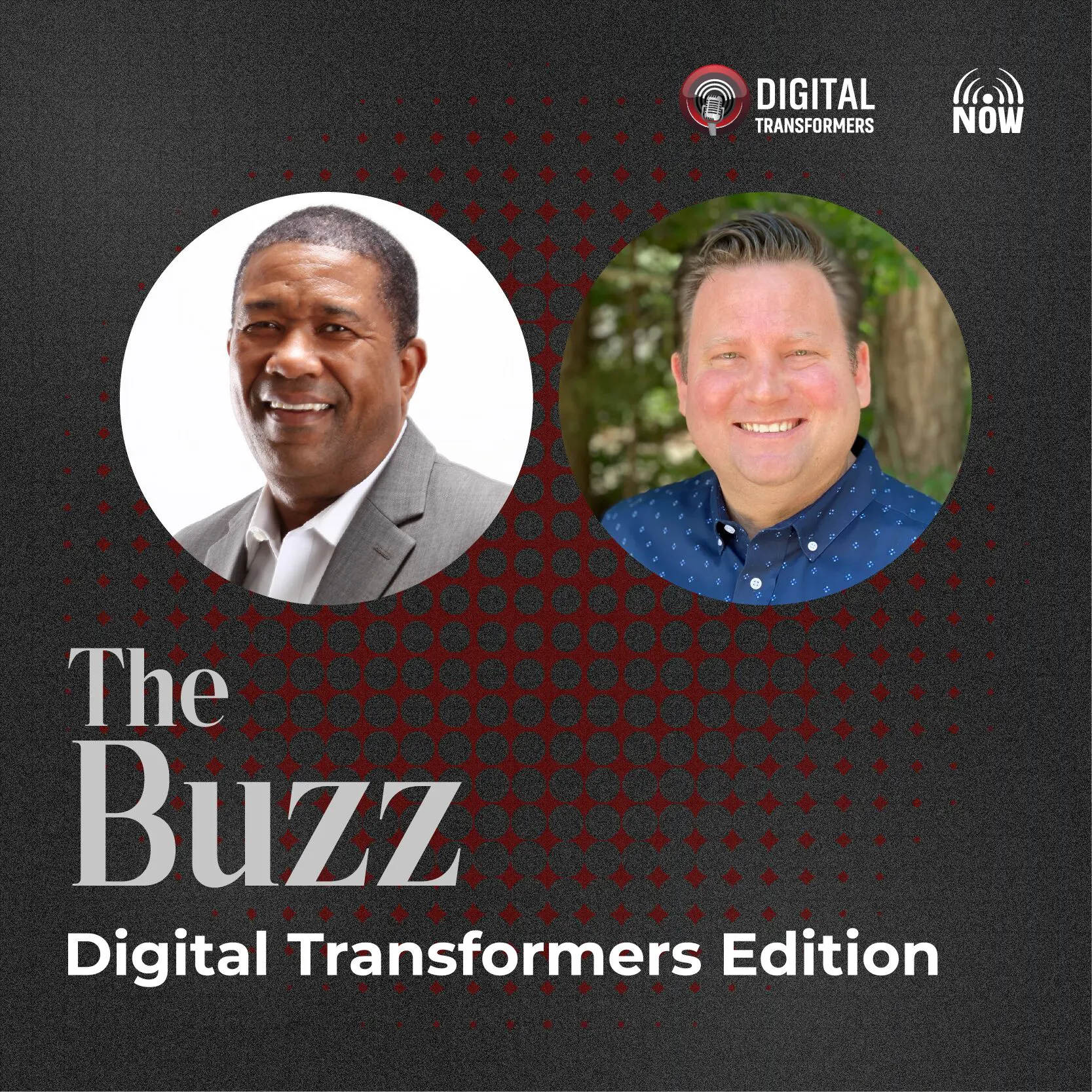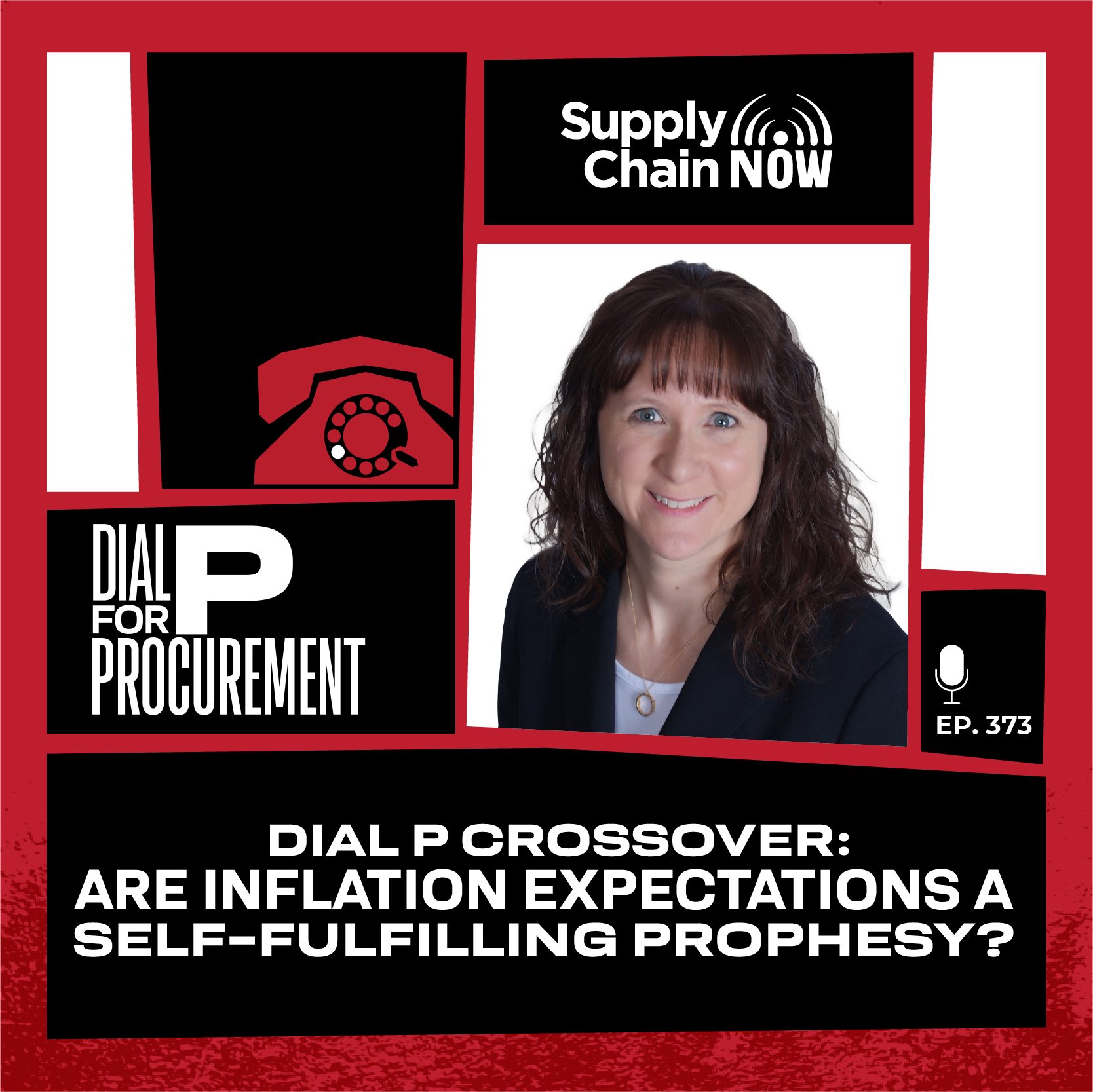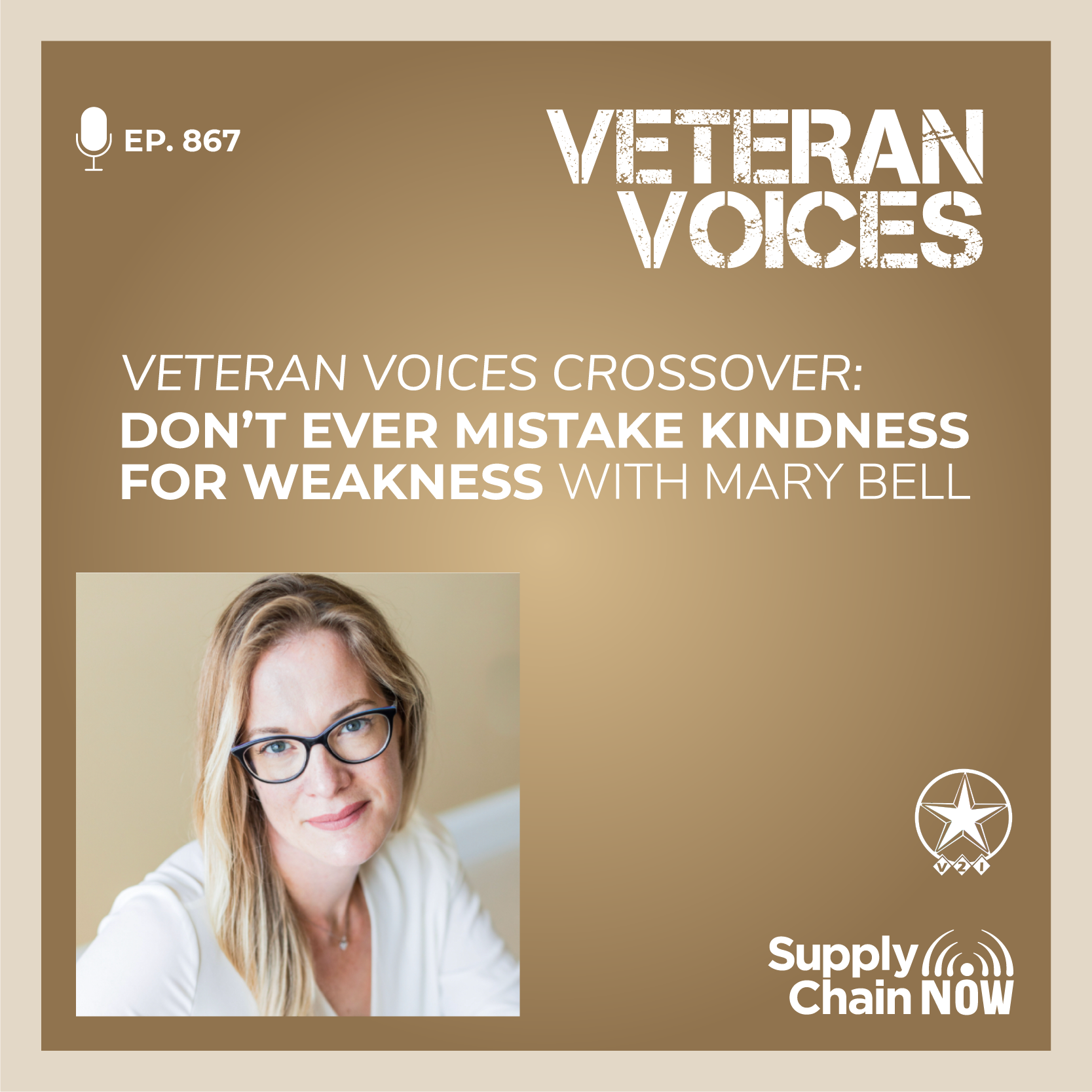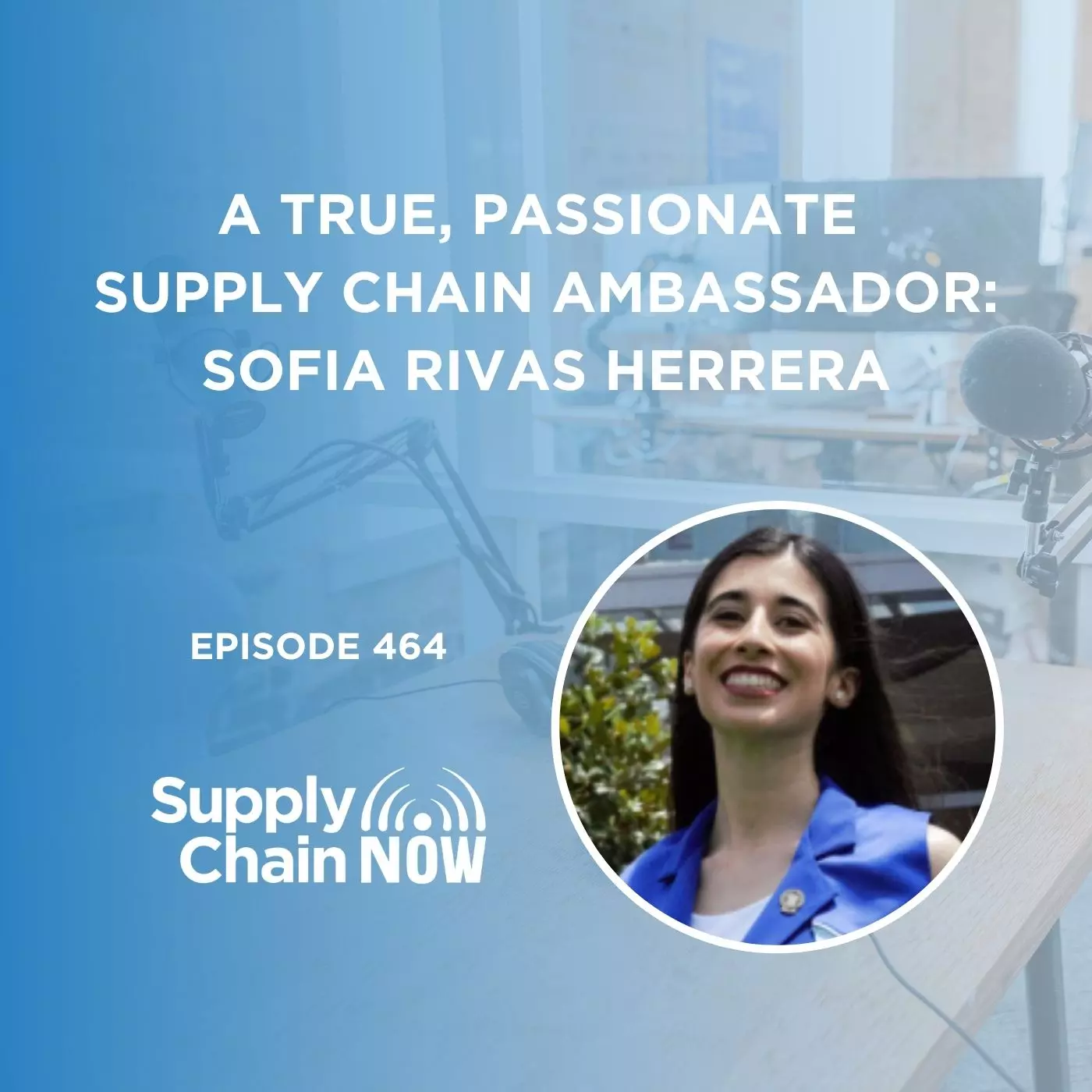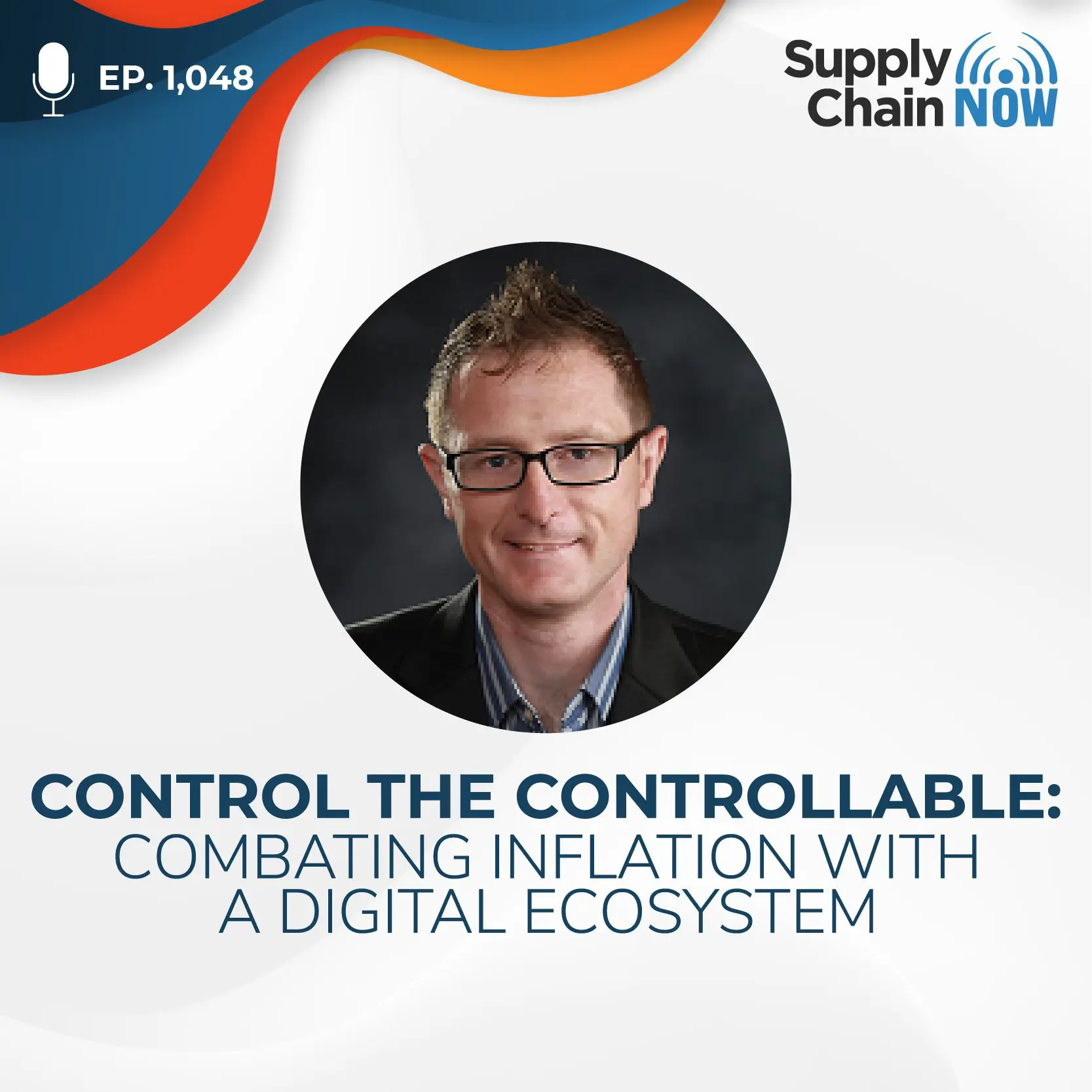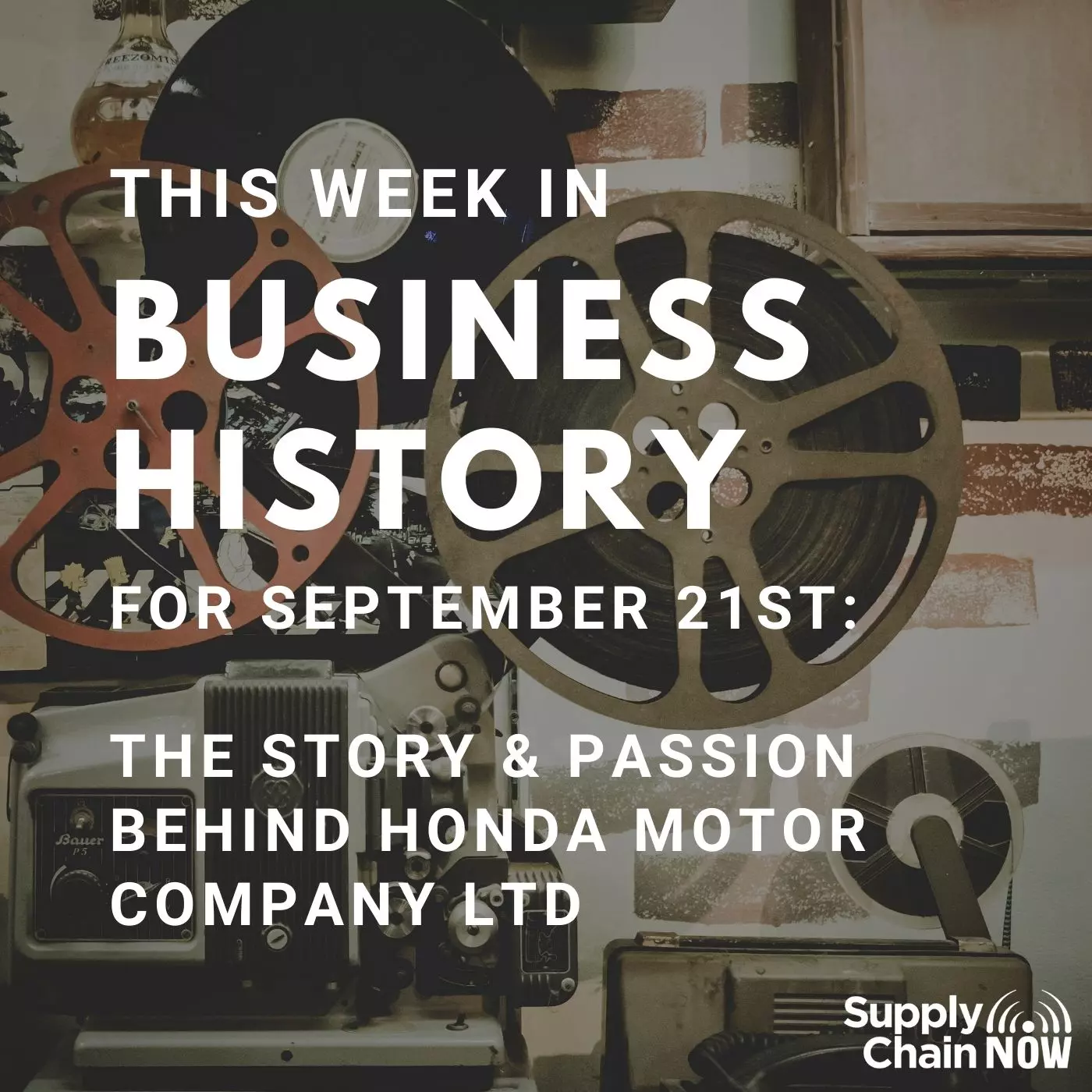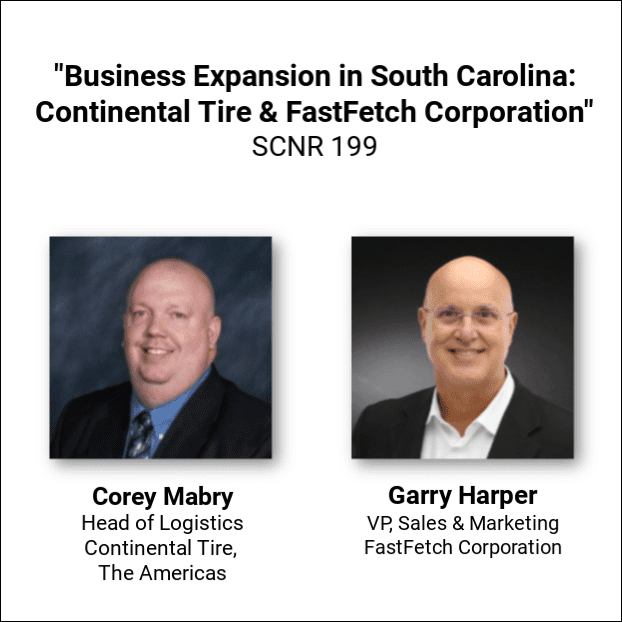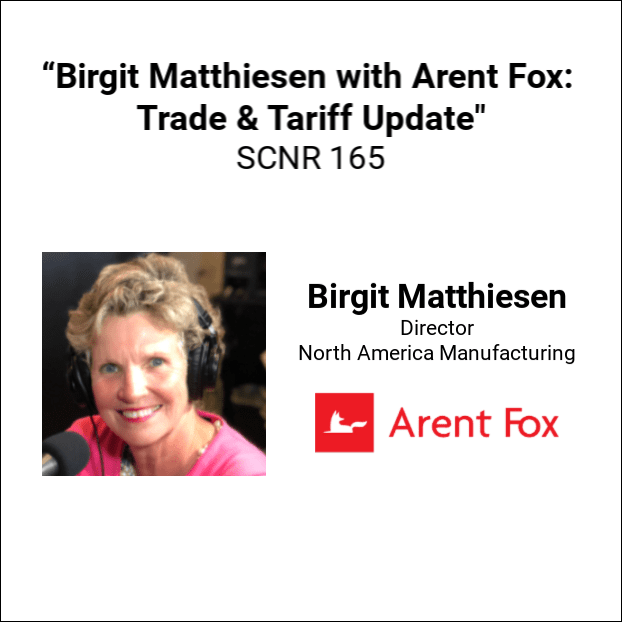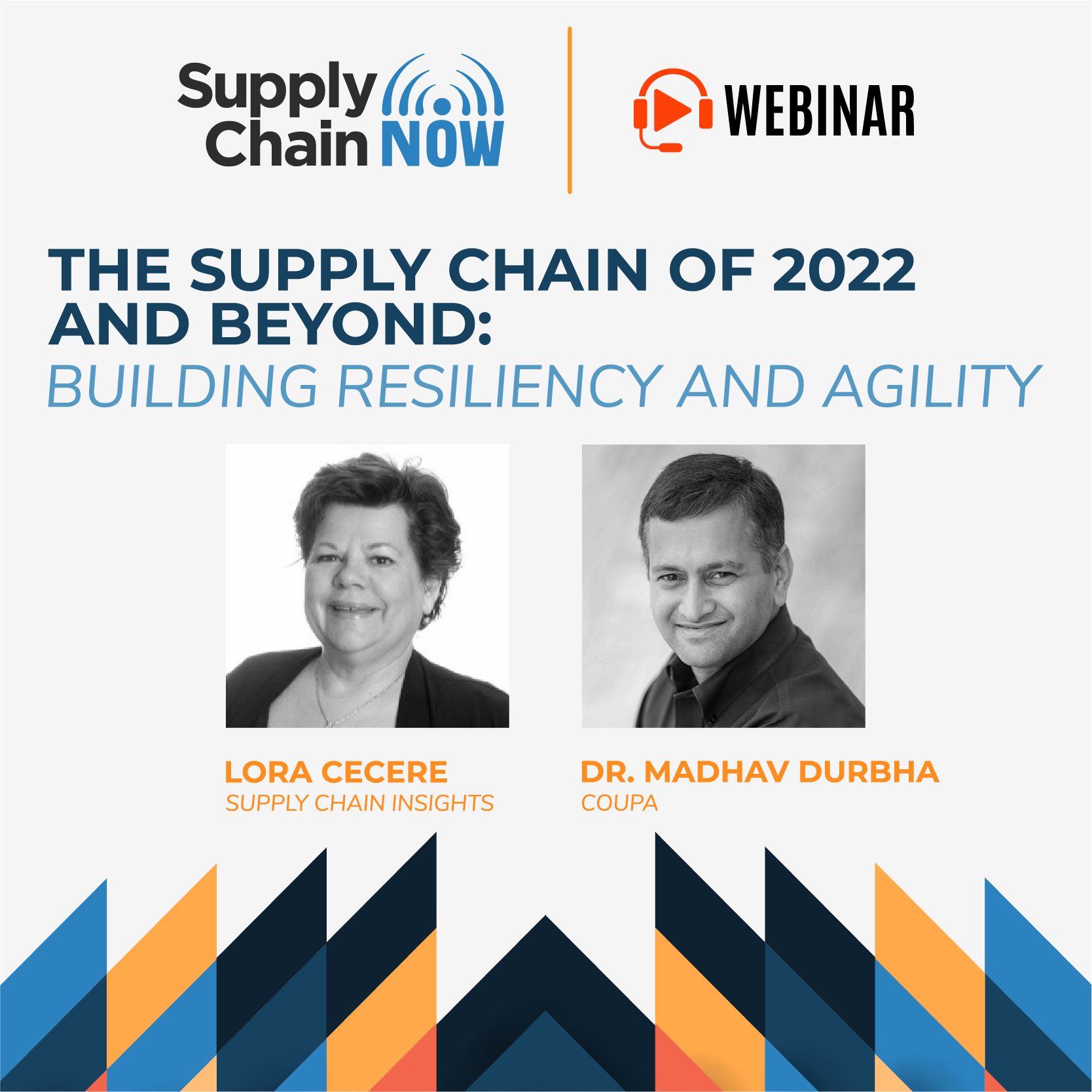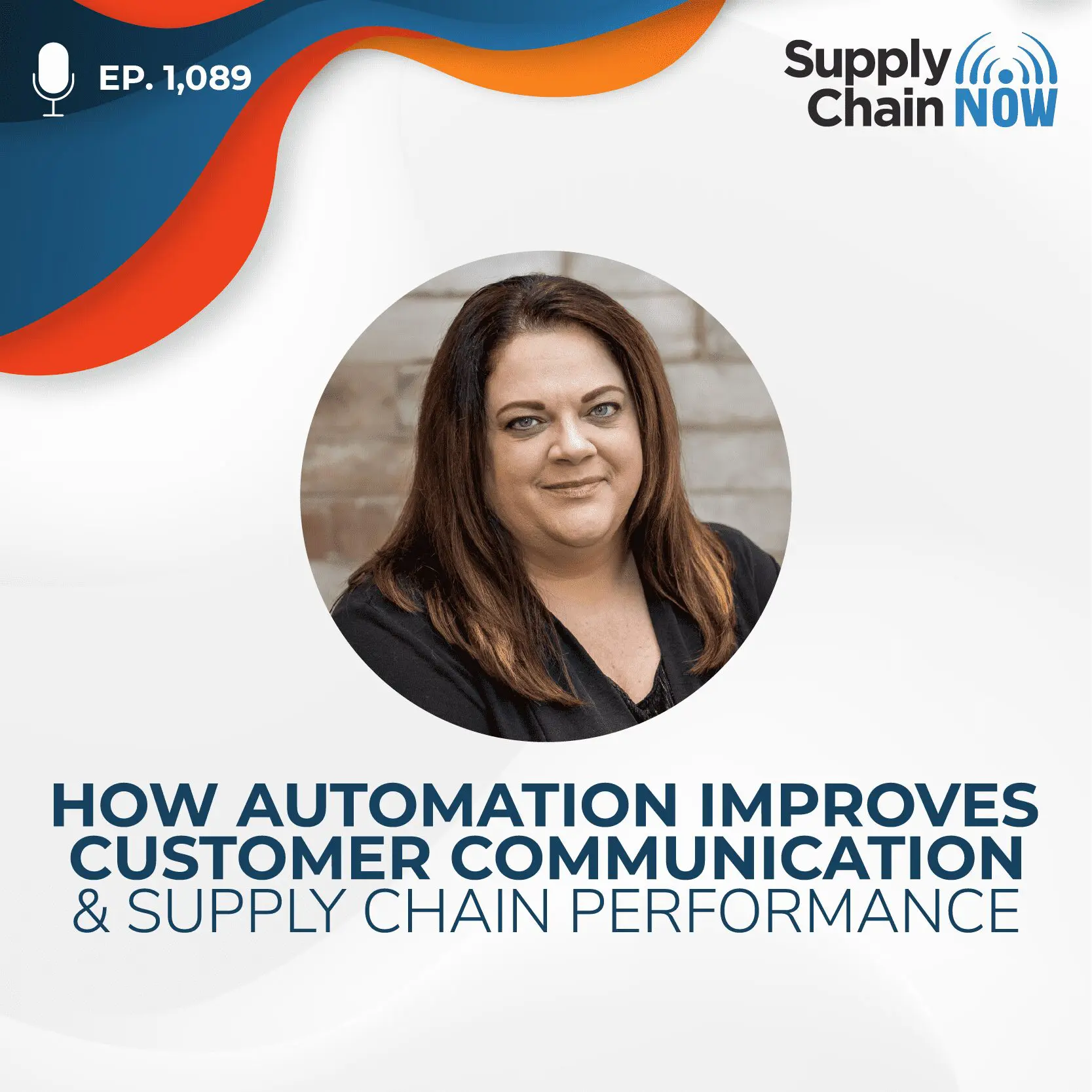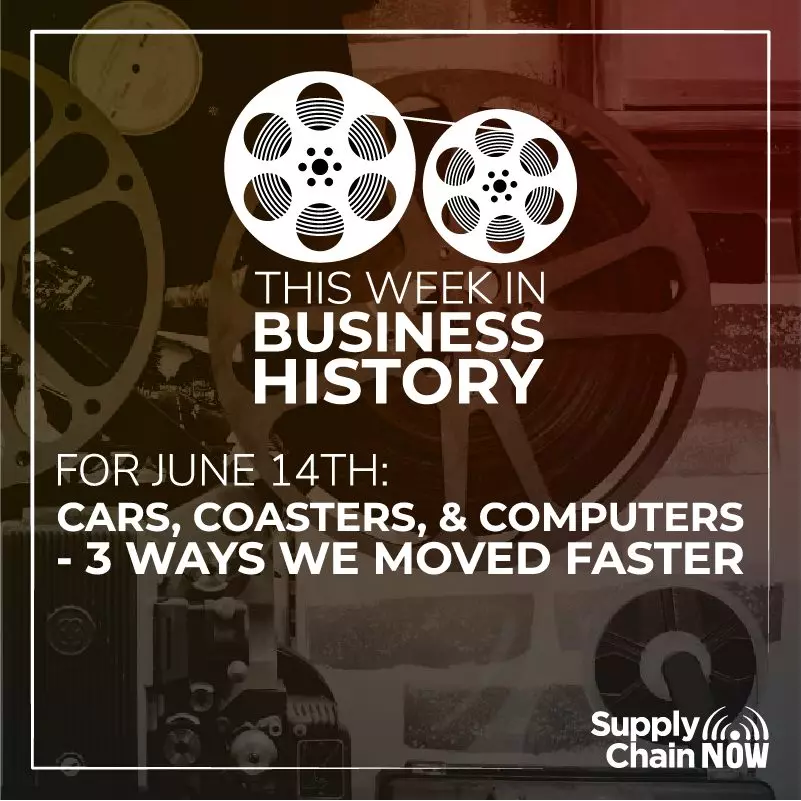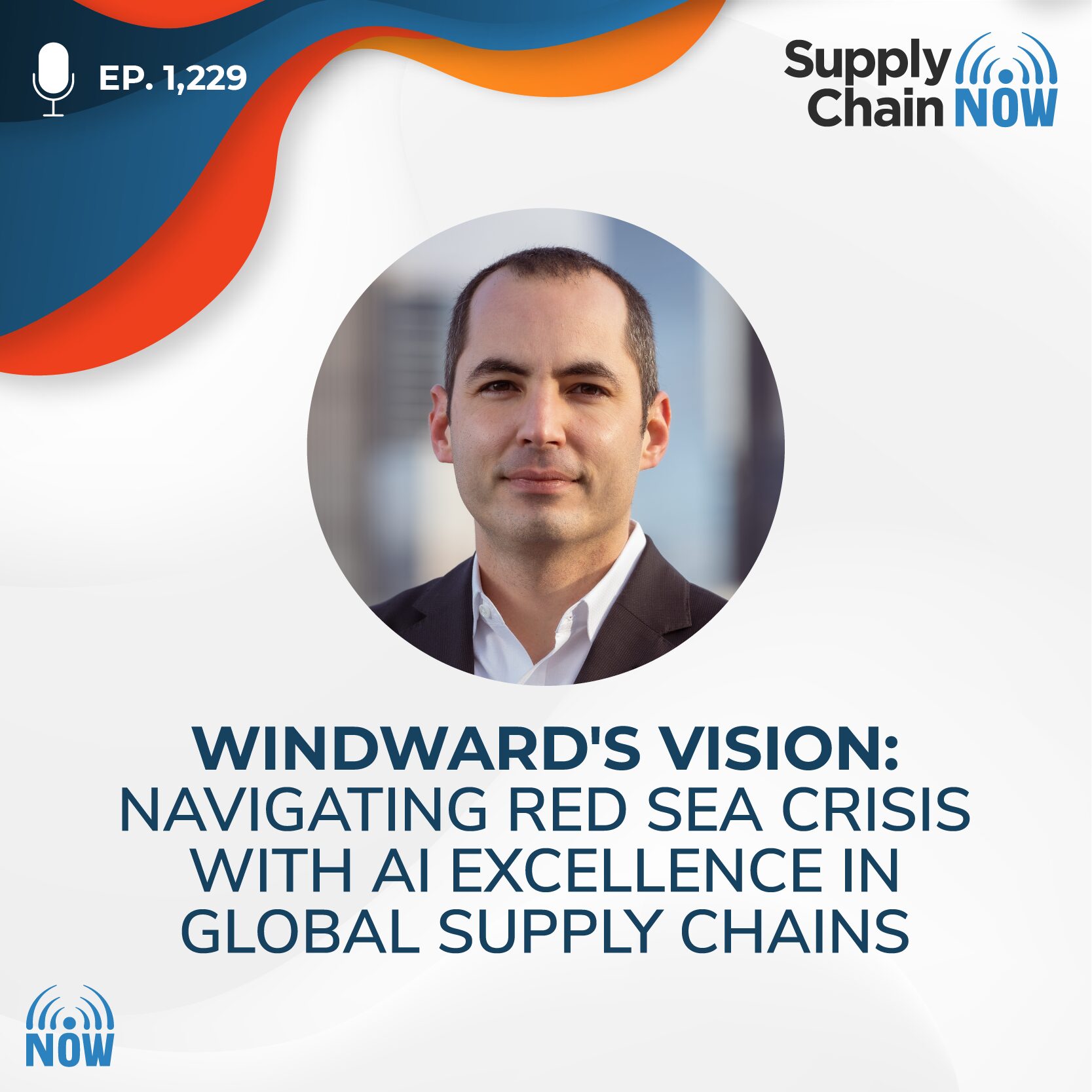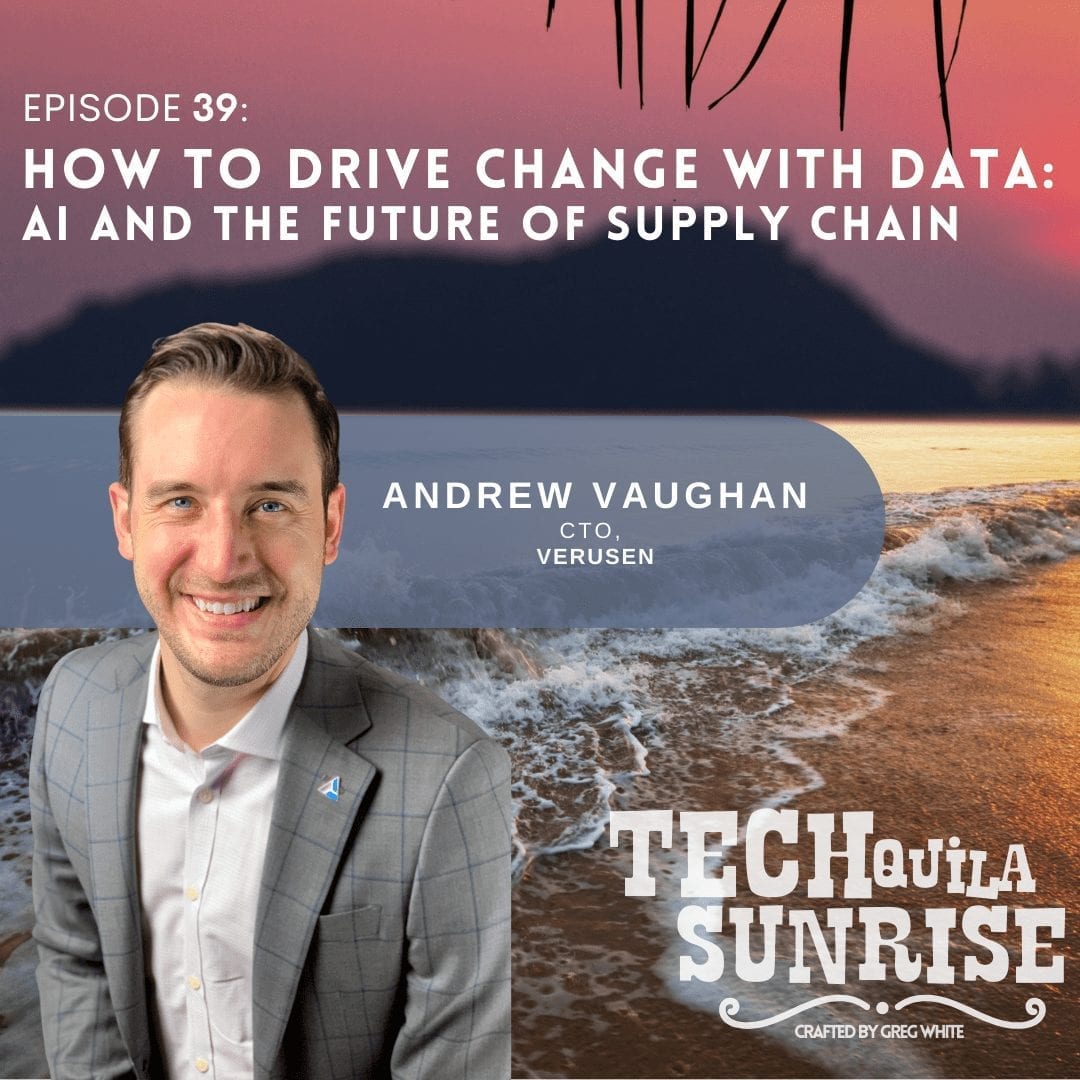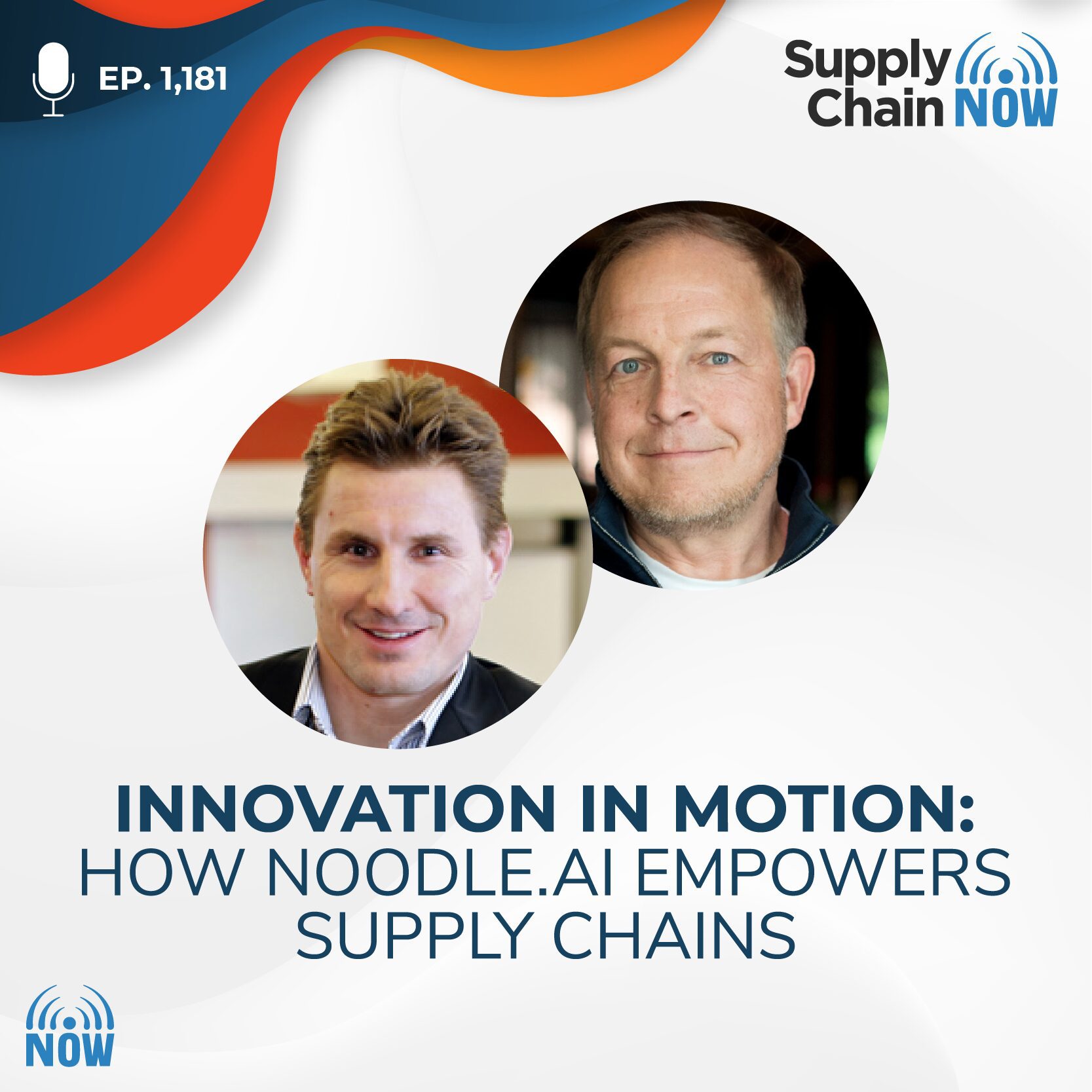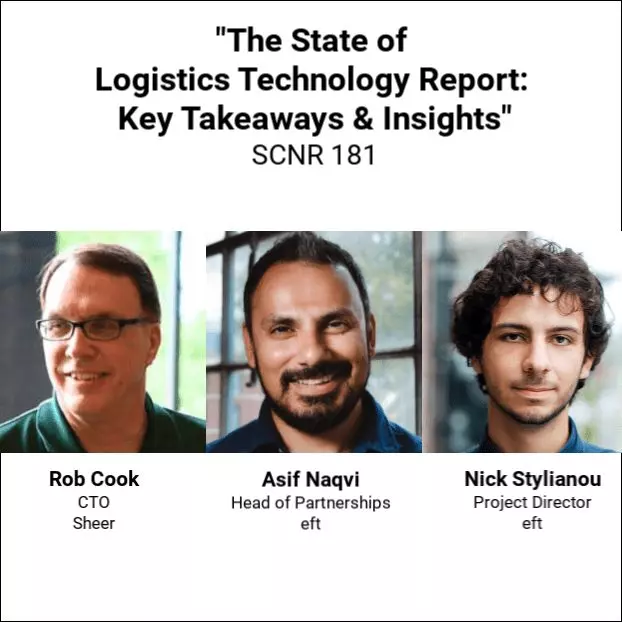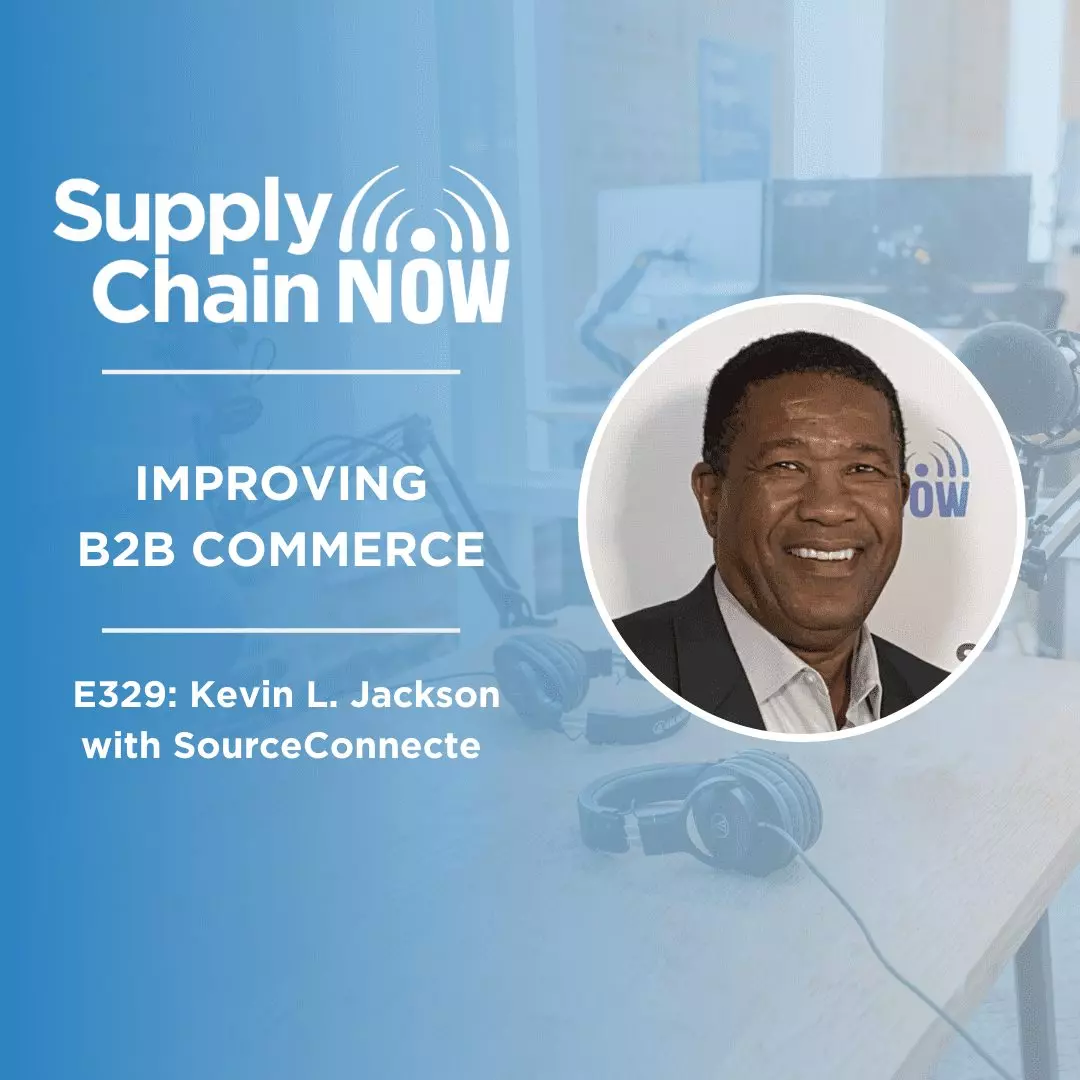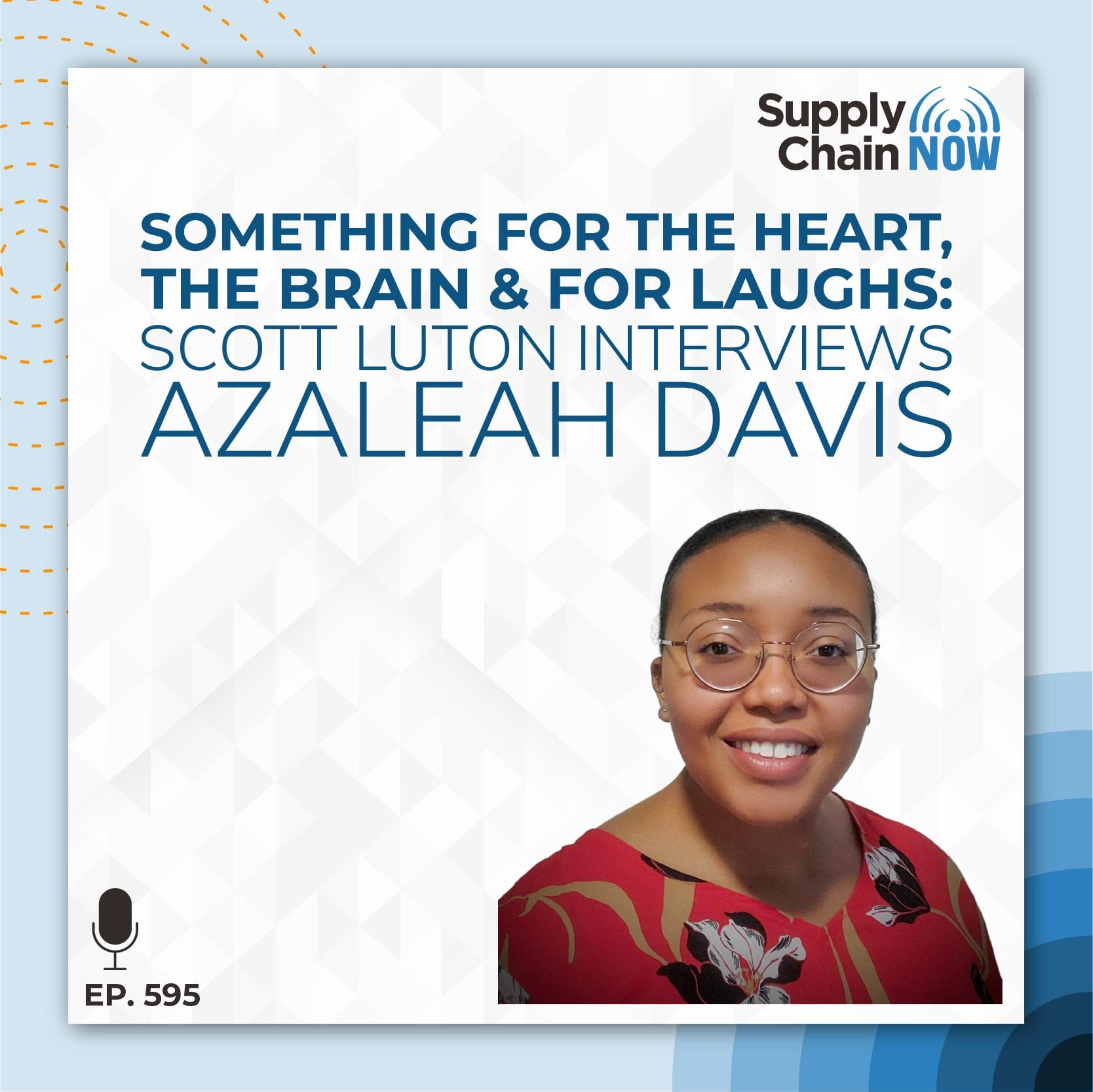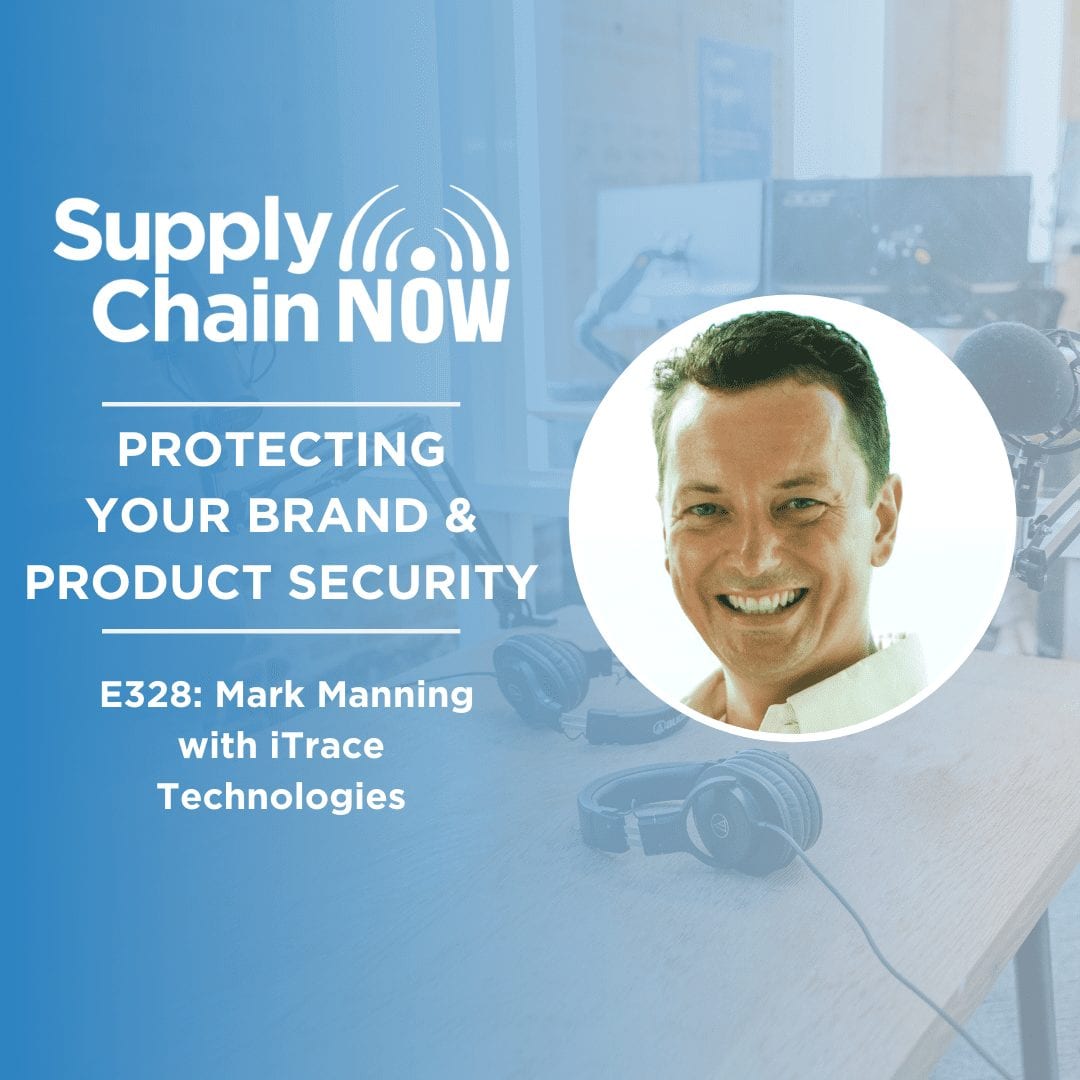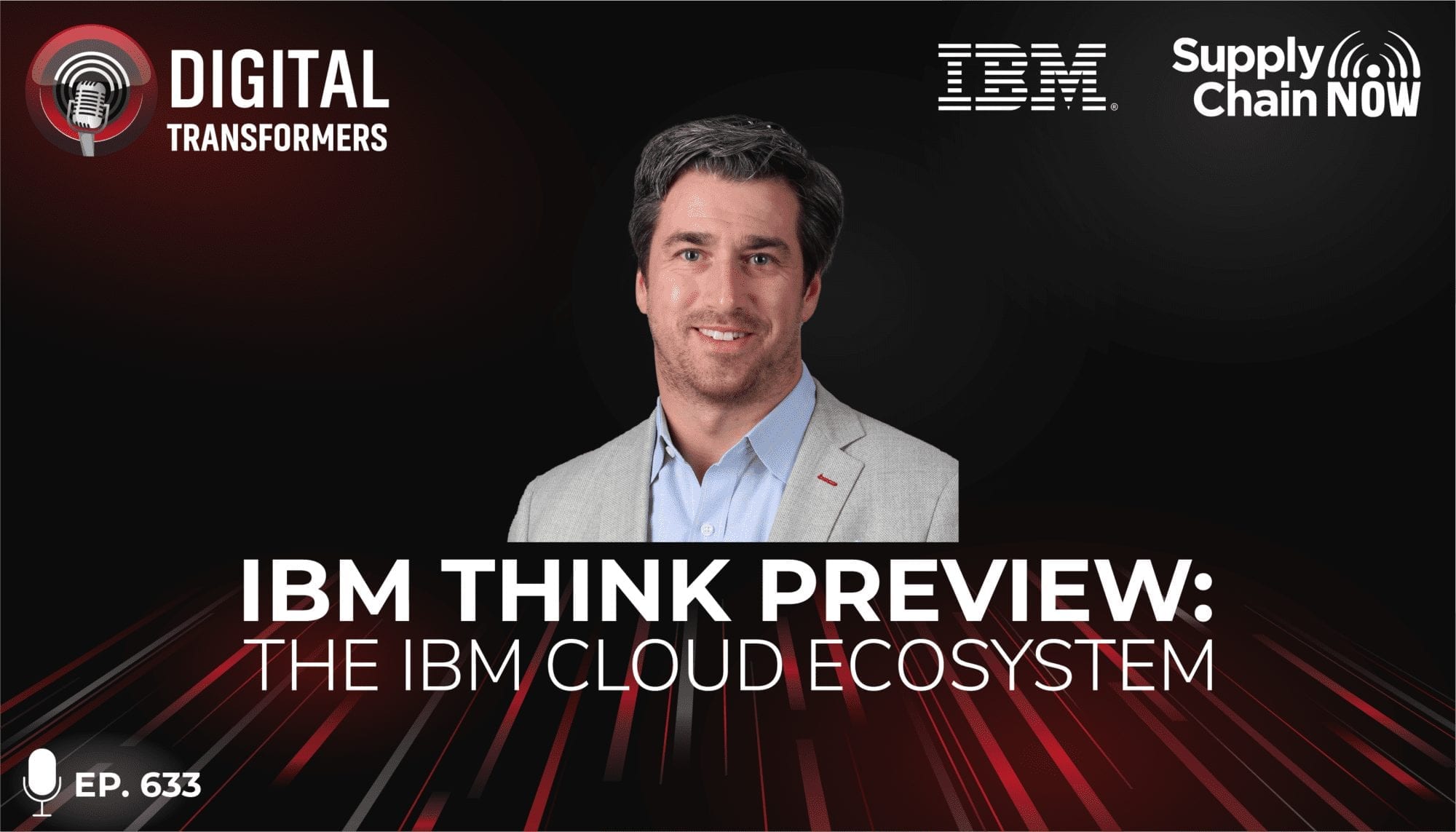
Episode Summary
In this episode of Digital Transformers, powered by Supply Chain Now, hosts Kevin L. Jackson and Scott Luton welcome Brian Fallon, Vice President, Global Sales, IBM Partner Ecosystem at IBM, to the show, to give a preview of the IBM Cloud Ecosystem and IBM Think 2021.
Episode Transcript
Intro/Outro (00:03):
Welcome to supply chain. Now the voice of global supply chain supply chain now focuses on the best in the business for our worldwide audience, the people, the technologies, the best practices, and today’s critical issues. The challenges and opportunities stay tuned to hear from those making global business happen right here on supply chain now,
Kevin L. Jackson (01:33):
So, good morning. Good morning everyone. This is Kevin L. Jackson and Scott Luton with you here on Digital Transformers on Supply Chain Now. Welcome to today’s live stream. Hey, Scott.
Scott Luton (01:47):
Kevin, how are you doing? I think I earned a degree in our pre-show session there. I really enjoyed the conversation.
Kevin L. Jackson (01:54):
Yeah. Absolutely. You know, on today’s show, we are getting a sneak peek of one of the leading global events that pulls together business thought leaders from around the world every year. Think 2021, the future of hybrid cloud and AI is here. And I have my think cube right here, so I’m ready.
Scott Luton (02:21);
Oh, where’s my son when we need him? That reminds me of a comic book, Cube, that powers movies these days in comics saving the world. Hey, Kevin. You’re right. We’ve got an outstanding session here today. Think 2021 is just right around the corner, May 11th here in the Americas, May 12th for APAC, Japan, and EMEA. A ton of great sessions teed up.
Scott Luton (02:44):
But today, Kevin, we’ve got a dynamic executive from the IBM Team that’s going to be joining us to kind of give us a sneak peek of what’s going to be covered with Think 2021 and some of the cool things that IBM and the ecosystem is doing, right?
Kevin L. Jackson (03:01):
Yeah. You know, CAD is my thing. So, I was really excited to do this. Geez.
Scott Luton (03:13):
Well, I could tell. You and our guest really make quite a one- two punch in the pre-show. And we’re going to bring Brian on here in just a minute. But, hey, quick programming note before we get started. So, you can find Digital Transformers on Supply Chain Now, the podcast channel, every fourth Monday of each month. So, be sure to find that and subscribe so you won’t miss a single thing, much like this show here today.
Scott Luton (03:35):
And secondly, we’re supporting a great nonprofit initiative to get supplies to India and their fight against the pandemic. You can learn more at vibha, V-I-B-H-A, .org. Doing great work there to help our friends in India.
Scott Luton (03:51):
Okay. With no further ado, let’s say hello to a few folks. And then, we’re going to bring our guests on. How about that, Kevin?
Kevin L. Jackson 03:56):
Okay. Let’s do this.
Scott Luton (03:58):
All right. So, starting, Shannon is back with us from Canada via LinkedIn. Great to see you here, Shannon. Andrea is back. Andrea, I hope this finds you and your sister, Sophia, well. And she says she’s never seen a countdown before that way. Kevin’s got the magic touch, I tell you. Noureldin is with us via LinkedIn. Great to see you there, Noureldin. Owolabi is back via LinkedIn from Nigeria. So, hello, hello. Mervyn from Dublin. Mervyn, great to see you. I hope your family are doing well there in India.
Kevin L. Jackson (04:37):
That’s what I really love about this show, it’s global. We have this audience just come from everywhere.
Scott Luton (04:37):
Agreed. And, you know, it’s like we’re talking pre-show. The world is getting smaller and smaller. And bless be the ties that bind, for sure. So, Kevin, are we ready to bring in our featured guests here today?
Kevin L. Jackson (04:37):
You know I can’t wait.
Scott Luton (04:59):
All right. So, let’s welcome in Brian Fallon, Vice President of Global Sales for IBM Partner Ecosystem, of course, with Big Blue.
Scott Luton (05:11):
Brian, how are you doing?
Brian Fallon (05:14):
I’m doing well. I’m doing well, Scott. Kevin, good to see you. Thanks for having me today.
Kevin L. Jackson (05:18):
No. Thank you for coming. I mean, it’s a hot time that I’ll be getting ready for Think.
Brian Fallon (05:24):
Oh, yes. We’re in the final stages here with it kicking off next week. So, very exciting time for us. Very exciting indeed.
Scott Luton (05:32):
Outstanding. Well, Kevin, at pre-show, we learned a little bit that Brian spent some time here in the Metro Atlanta area where Supply Chain Now is based. And, of course, former colleagues. You and Brian were with IBM. So, I’ll tell you, lots of common bonds here. But let’s start.
Scott Luton (05:49):
Brian, before we get to the heavy lifting, and there’s a ton of heavy lifting we’re going to do between some of the cool technology trends and business trends, and what Think 2021 is going to be like, let’s get to know you a little bit better. So, tell us a little about yourself and where you’re from and your role at IBM.
Brian Fallon (06:06):
Okay. Well, again, thanks for having me. Brian Fallon, currently the Global Vice President of sales for IBM’s Partner Ecosystem. A little bit about me, I live here in the New York area. I did start with IBM, as you said, Scott, in Atlanta. I have very fond memories of my three years I spent there. I live here with my wife, Catherine, and our son, Liam, who was born about six weeks ago. So, new father here.
Kevin L. Jackson (06:32):
Congratulations.
Scott Luton (06:32):
Congrats.
Kevin L. Jackson (06:34):
Thank you. Thank you. And I started with IBM through, actually, an internship. It’s what got me exposed to the culture of IBM at the TJ Watson Research Center. Kevin, I know you were in the White Plains area. So, in Yorktown Heights, there’s the research center. That’s actually where I first started with IBM. And then, subsequently moved to Atlanta, Georgia to go through global sales school, which is how I spent some time –
Kevin L. Jackson (07:00):
That was in good old 1133 Westchester Avenue there in White Plains.
Brian Fallon (07:04):
Yeah. I remember the office from years ago. But, now, I’m in the New York City area. And I’m happy to be here with you both today. So, that’s a little bit about me, Scott.
Scott Luton (07:15):
Outstanding. So, two very quick follow up question. So, first off, you’re illustrating the importance of internships then when you’re entering the industry and, still, certainly today. So, we always encourage companies that that’s still wonderful vehicles to invest in and you’re living and walking proof. And then, secondly, more on the personal side, can you share with us who Liam was named after?
Brian Fallon (07:41):
So, not a family name. The middle name Maliki named after my father. So, Liam Maliki Fallon, named after my father, and my grandfather, actually, is where that name comes from. But Liam was just something my wife and I thought it had a good ring to it.
Scott Luton (07:55):
I love it. I love it.
Kevin L. Jackson (07:57):
Right. It sounds like he’s going to be a movie star.
Brian Fallon (08:02):
High aspirations, Kevin.
Scott Luton (08:05):
Well, congrats.
Kevin L. Jackson (08:05):
There’s nothing wrong with that. Yeah.
Scott Luton (08:07):
Congrats again on your addition. So, Kevin, where are we going next?
Kevin L. Jackson (08:11):
Well, one of the things that I want to really understand is that your title, Partner Ecosystem, I mean, I’m not sure if the audience really understands or appreciate what that mean. Can you sort of tell us how do you run or manage being executive of Partner Ecosystem?
Brian Fallon (08:32):
Okay. Fair question. So, let’s kind of break it down a little bit. So, what is the Partner Ecosystem? With IBM, we have partnerships with over 45,000 firms. It’s how we deliver scale through our technology mission. So, what I’m responsible for is really delivering the technology business through this set of partners and reducing the friction to give them access to our technology, inclusive of software, our systems, our infrastructure platforms, as well as our public cloud capability.
Brian Fallon (09:02):
So, this ecosystem is unified by a set of common goals. We all have a set of common goals and we have a belief in the strategy that IBM’s going down and the capabilities that our offerings and products bring to bear. This is kind of the glue that holds us together. What my role works on is, as I said, reducing that friction. How do we get adoption of the technology through this ecosystem in an accelerated fashion?
Brian Fallon (09:31):
And what we really rolled out is three motions, building on top of IBM technology and partners who adopt the technology through that; delivering services around it, not only implementation services but managed services, utilizing pieces of our technology and intellectual property that our partners developed; and, of course, selling the technology and helping clients implement it as is in their enterprises. And that’s really what we’ve been working on as the Partner Ecosystem at IBM.
Kevin L. Jackson (09:59):
Wow. I read that there’s like a billion dollars was invested into expanding, providing, and, I guess, reducing that friction of being an IBM partner. Is that true?
Brian Fallon (10:14):
You read correctly. Yeah. So, with the new leadership under Arvind Krishna, our CEO/Chairman, we’ve made a concerted effort on how do we measure value for the IBM corporation. And that’s not just value for customers, but also value for our partners. It’s got to have both in order for IBM to really get that multiple effects. So, we’ve invested heavily. That billion dollars is in the form of investment funds to help our partners migrate to our technologies to help them build solutions and capabilities on top of our technologies, as I previously spoke to. We’ve also made investments in more technical resources, such as our Hybrid Cloud Build Team led by my colleague, Willie Tejada. We made that investment so that partners can get access to the individuals who have skills on these platforms so that we can help them learn faster, adopt quicker, get to market with our technology. And that’s kind of in a nutshell what we’ve done with the billion dollars, but we’re not done yet.
Kevin L. Jackson (11:16):
Well, I’m going to pull on that string a little bit about the IBM Cloud. Your approach seems different than what people would typically expect from a cloud service provider. I mean, the appropriate visual is a menu of options that you have to select from with sort of a take it or leave it service level agreement. But it seems like IBM took a different direction in this Partner Ecosystem. Why?
Brian Fallon (11:48):
Well, I think it comes down to the fact that 75 percent of enterprise workloads have not migrated to public cloud. And if you look at IBM’s heritage and the success that we’ve enjoyed over, you know, a hundred plus years, some of that is not in the cloud space. Although you could argue, we were one of the early adopters to what was the predecessor to cloud and how we shared managed services and the capabilities we bring with our mainframe platform. Now, that being said, our approach is about openness and the reality that the world is hybrid. So, having a multi-cloud approach is sort of table stakes in this role. And that’s where our approach differ because we didn’t take it from the strategy from a public cloud kind of going into the data center. We’re looking at it from a data center approach going out to the cloud.
Brian Fallon (12:38):
Not all workloads are created equal. Not everything has a final destination that may reside on the public cloud. But giving customers the flexibility to make that choice based on the application, the security requirements, the user requirements gives you flexibility and choice. And you’ll hear me talk about consistency, flexibility, and choice to the customer. That’s really what the open hybrid and AI enabled architecture that IBM is working on is all about.
Kevin L. Jackson (13:08):
Well, when technologists hear flexibility, you know, open source sort of flashes in front of them. And IBM has really been a leader in open source. How does this support your Partner Ecosystem?
Brian Fallon (13:08):
So, the first way I would say it supports our Partner Ecosystem is that, in serving our partners and clients, they value this consistency and openness. Because it avoids that lock-in strategy. The minute you start creating something on a proprietary set of technology, you create difficulties down the road. So, beginning with an architecture where you can design (1), deploy (2) in an environment of your choosing gives you tremendous flexibility to start from.
Brian Fallon (13:58):
I cited the 75 percent of enterprise workloads that haven’t moved. Well, why? Because it’s really hard work, right? This isn’t trivial, you know, work we’re talking about. So, it takes a lot of thought and planning. As you’re going through this, there’s an expense to it. You want them to be thoughtful so that every investment pays a dividend in the future, and that you’re not going back and refactoring and trying to recreate these workloads. The approach that we have very much helps to accelerate that. But do so in a secure and supported manner.
Brian Fallon (14:32):
Our partners are seeing value in that because, one, it’s helping show a value to their customer in terms of the longevity. So, the return on investment is more near term. Two, it’s helping to accelerate that move. So, the flexibility that they’re able to offer is allowing clients to reduce their expenses in the near term and provide greater flexibility. So, they’re actually able to extract insight from the data that resides across their organization, that’s one simple example.
Kevin L. Jackson (15:02):
Well, Think 2021 seems to be built around evolving that IBM partner experience. Is that true?
Brian Fallon (15:10):
It is. It’s very much a partner-centric approach. And everything we’re doing, including our flagship conference here at Think, we had tremendous registration already, not only from customers, but partners alike. I’m sure we’ll see that continue to ramp over the coming days with it, you know, so quickly approaching. The event is really tailored in a way where there’s a little bit of something for everybody. I don’t know if you’ve gone through the agenda, but, I mean, there are some really technical tracks that our partners can take advantage of.
Brian Fallon (15:43):
There’s the ability to go out and get competencies, right? And, actually, we have a promotion going on now where partners who signed up for Think get access to a free voucher for a competency. On average partners with these competencies earn about 25 bucks what partners that don’t have them. So, there’s a value to this in terms of, you know, knowledge being power here. There’s a tremendous up-skilling opportunity at Think. And we’re going to be making a ton of announcements as well. So, you’re going to want to tune in for that as well, Kevin.
Kevin L. Jackson (16:12):
I will. Scott, what do you think about this?
Scott Luton (16:15):
Well, just one big key [inaudible] question, Brian. How good is the food at think 2021?
Kevin L. Jackson (16:22):
Virtual food, right?
Brian Fallon (16:22):
Well, it depends how close you’re going to virtually take it from your kitchen, Scott. I mean, that’s the beauty of this, right? You can do it in the comfort of your own home.
Scott Luton (16:32):
I love it. Knowledge is power. And I admire the companies that really have doubled down, especially from a virtual standpoint and global standpoint to give folks the opportunity wherever they are to plug in and better themselves as an organization. And 25X – holy cow – that is quite a return. So, you shared a lot of different things that IBM is working on, the partners are working on, and that’s some things that we covered at Think 2021. But in particular, this IBM Satellite Cloud, can you tell me more about that especially from a non-technologist standpoint, perhaps?
Brian Fallon (17:08):
Okay. Okay. Well, it’s a game changer from a non-technologist standpoint. But why is that? So, we talked about enterprises wanting to move to the cloud. There’s a ton of considerations to make. What workload? How will I get it there? As you’re making these decisions, it’s not going to be a move everything, right? So, you’ve got to be thinking about, how am I going to manage these disparate environments? I’m going to have some consuming on-prem resource, some on a public cloud, maybe private instances off at another location as well. How do I manage these various interfaces and technologies? Because it’s not consistent as you get into these different environments.
Brian Fallon (17:47):
What IBM Cloud Satellite allows you to do is to take that instance to buy IBM Cloud and put it anywhere you want, in your data center, in another data center, in a public cloud that is not even IBM Public Cloud. You can put it in another competitive cloud offering if you want. But get that same consistency and connectivity, have a central point of management. And, really, from a security standpoint, there’s a lot of advantages, too. From a monitoring and security standpoint, you get consistency in a single pane of glass. So, you know, the experience from our clients has been, they feel more confident in the move to cloud with IBM Cloud Satellite. I guess that’s how I would sum it up. It’s about confidence in your ability to make that move because it’s not a trivial task, as I said earlier.
Kevin L. Jackson (18:33):
Yes.
Scott Luton (18:33):
I’m sorry. Go ahead, Kev.
Kevin L. Jackson (00:18:34):
Yeah. I was just saying, it sounds like the Satellite Cloud is intent on accelerating the transition to cloud or making it, I guess, a better business case.
Scott Luton (18:47):
Yeah. That’s what I heard as well, Kevin. It’s certainly accelerating. It’s one of the common themes with what Brian is sharing with us thus far. And as we know with cloud, especially proven successful cloud solutions, that flexibility and choice which is so important, whether it’s global supply chain or global business. So, business leaders are craving, craving meaningful and practical flexibility in 2021 and beyond.
Kevin L. Jackson (19:13):
Yeah. Absolutely. But, I mean, we’ve talked a lot about cloud, but Think is more than cloud. There seems to be, maybe, an equivalent focus on artificial intelligence, I think. Can you explain that?
Brian Fallon (19:31):
Yeah. It’s a good observation, Kevin. IBM, we’re a technology company. We’re a technology company led by software, and systems, and cloud capabilities. And with that, you know, our mentality is that AI should be infused across all of those things. It’s not separate. It’s included in. So, from a customer perspective and as our partners are evaluating this technology, they’re saying, “Well, we need to modernize certain legacy environments. We need to help our customers predict outcomes or adapt to changing situations.”
Brian Fallon (20:09):
We’ve seen a lot of that with this unfortunate pandemic situation that has found us having to adjust everything. Supply chains have certainly had a dramatic impact. But you know, really, the remote workforce and the shift to that has created a lot of change. And predicting that change is very difficult for an organization depending on what your specialty is. As you look at securing it, how do I secure this environment as we’re going through that modernization? So, the technology that we have here is really kind of the basis for AI. I would say that cloud is sort of the gateway to AI. Let’s start there, maybe, Kevin.
Brian Fallon (20:49):
And what we’ve done has started to infuse, you know, the Watson AI capabilities into our offerings. Because once you can automate processes, the next logical function is to start to, you know, automate and predict and remove the manual work that goes into what you just automated. Because you’re improving the value of those monotonous tasks. You’re increasing the cost for the organization in doing those monotonous tasks. And you’re helping them to keep systems online more efficiently and more effectively than they were doing it manually. So, the AI capabilities, you’re seeing it in things like Watson AIOps. We’ve already infused it in certain products today. And you’ll see that continue for the duration.
Kevin L. Jackson (21:38):
Wow. This seems to be a real game changer. But one thing that you didn’t say, in these types of conversations you always hear about the Internet of Things, IOT. Cloud, artificial intelligence, what about IOT? How do organizations work with IBM in that area?
Brian Fallon (22:01):
Great question. So, the Internet of Things or IOT, I’d say we’ve evolved. We’ve evolved to this internet that thinks. I’ll give credit to my colleague, Sujit Bhatt, who came up with that kind of term. It’s the internet that thinks. Everything is smarter, right? Devices and machines that didn’t previously have compute capability on board now have it. It kind of leads into the edge conversation and computing at the edge.
Brian Fallon (22:33):
But, now, when you have all of these smart devices, the problem turns to, “Well, we want to predict and automate how we manage those.” You’ve got more security vulnerabilities potential. How do you manage that in an autonomous way to remove some of the manual work that would otherwise have to go into, you know, thousands of sensors? Sensors that could be reutilized on a factory floor, for example. Or deployed to a different use case than previously assigned. Do you have policies that could push that out automatically? That’s really where we’re thinking about the Internet of Things. I think automation and the internet, it’s like table stakes now.
Brian Fallon (23:16):
The next frontier is how do I manage that reality? How do I automate it? And how do I start to predict the changes that we’re seeing from the data that we’re collecting? How do I react to that quicker? And that’s how organizations will improve their efficiency, improve safety for workers, as an example. The use cases are sort of endless there as you really get into more mainstream enterprise applications.
Kevin L. Jackson (23:43):
Yeah. Just a little follow-up on that. The other term that’s always pulled out is edge computing. So, will we see edge computing at Think?
Brian Fallon (23:57):
Absolutely. Absolutely. You’ll hear about IBM Edge Application Manager. I kind of spoke about that in concept in my last response. But, you know, Kevin, I think edge computing gives us the ability to use our data faster, let me say it that way. To use the data that we’ve collected faster and more secure. You’re preventing the need to move data. And, of course, moving data has, you know, intrinsic security risks with it. So, can we do more processing at the edge? That’s really where IBM solution is going. And we’ve utilized the Red Hat OpenShift platform as our basis for our edge solution. As a software company, that’s really where we’re moving all of our software. It’s got that OpenShift foundation, which gives us the flexibility and choice, I mentioned earlier in the conversation.
Brian Fallon (24:46):
And that’s true of the edge, right? Because the edge and, I think, 5G, you’re going to see the continued move to more edge computing because of that technology and the capabilities that it brings from a speed and data latency perspective, you’ll have more and more edge computing occurring. So, we moved out of the data center, kind of the centralized old approach to things, if you will, to more of a decentralized edge based approach. That lets you get into the Internet of Things and utilizing all those sensors more effectively to do more real time interactions. Then, you bring the AI on top of it. You infuse AI into everything. So, that becomes the predictable way you can make decisions. It’s about, you know, improving the insight that humans can make, not replacing humans.
Brian Fallon (25:35):
It’s important to mention that, right? Because we started the conversation with internships. We’re not here to replace people. Let’s be really clear about that. IBM has got a program called the Summit Program. That’s our kind of new hire program in the sales role where I live within IBM. That’s an important distinction here, because, I think, as you look at how we’re utilizing this, it really changes the way individuals interface with this technology and how productive they can be.
Kevin L. Jackson (26:08):
Yeah. So, Scott, apologies for cutting you off, but you had a comment?
Scott Luton (26:13):
It’s tough to hold back. A lot of comment from what Brian is sharing. So much that gets my blood running. I love one of his last comments there around augmentation. Augmentation and how technology is really empowering folks, especially folks that are willing to learn new things and step into new windows of opportunity and whatnot. So, I love that.
Scott Luton (26:36):
You know, I know that we’re going to make sure grabbing any of your other thoughts around Think 2021. But looking back, Brian, I bet you’ve been through a number of these events, these conferences that IBM and its partners put on. What’s one of your favorite elements or aspects to these events, whether they’re in-person, which we’ll eventually get back to, or some of these outstanding virtual events we’ve seen?
Brian Fallon (27:01):
Well, I mean the part I enjoy most is connecting with our partners from around the world. It’s obviously maybe a little bit more fun in an in-person setting. But seeing folks gather from around the world at these locations and catching up on the really innovative things that we’re doing is fantastic. Hopefully, you’ll tune in and you’ll hear me talk to one of our partners about the solutions that they’re building. But it’s really that camaraderie that we’re building as an ecosystem because it’s a community, as I said earlier.
Brian Fallon (27:34):
You know, everybody here at this event has a common interest in the technology and the power that it has to drive, you know, real results for our customers. That innovation and how it unfolds in front of the customer in terms of real business value. And they’re passionate folks. They’re really passionate about, not only the IBM components, but the intellectual property that they bring to bear. And that’s a lot of what we’ve been trying to infuse the shift of the billion dollars that you mentioned earlier, Kevin. To help clients unlock that creativity, use the IBM platforms to accelerate their go-to market and create new solutions to the benefit of our customers and our industry. And there’s numerous examples that you’ll hear at Think of that.
Brian Fallon (28:20):
But to answer your direct question, Scott, it’s the connections. I’m sure I’ll speak to virtually 20, 50 partners, however many the hours in the day allow for. But it just doesn’t make up for, you know, sitting down and having a meal with folks that you haven’t seen in sometimes a few months or a year, especially with the travel restrictions that have been in place. So, I’m really looking forward to getting back to that in the near future.
Scott Luton (28:47):
You’re singing my song for sure. I love the connectivity, and that’s true sense of community and reconnecting with old and new colleagues and partners. One final point, Kevin, before I toss it back over to you. I love how Brian described how we’ve got to redefine the definition of value. I think, without pointing fingers, there are some organizations that are clinging to really old-fashioned, old ways, of defining value. And consumers and organizations alike are measuring real value. Bottom line, move the needle value in so many different ways these days. So, Brian, I appreciate you sharing that from earlier.
Brian Fallon (29:29):
Oh, thank you. Yeah. I mean, it’s a statement of scale, I think is what it comes down to. No one organization can do great things alone. And what we’re really embracing at IBM is the complimentary value that our partners bring to our customers, and I mentioned the solution aspect of it. But, you know, deploying our technologies is something that our partners are experts at. And they become evangelists of the platform. So, really grateful for the network of partners that we have and looking forward to hopefully meeting some new ones at Think, Scott, this year.
Kevin L. Jackson (30:11):
Well, I mean, one of the things that you have talked about, the importance of partners. Capacity has been tough in a lot of ways. But one way that it’s changed our life is the appreciation of technology. And in the business world, that meant an accelerated adoption of technology. I know many people have told me, you know, “We are doing all these virtual events and endless Zoom calls as a business person.” But this collaboration that we’ve been able to really bring out of the closet because the technology was already there, but the adoption was kind of slow. And because we were forced, we have really accelerated the adoption of a lot of these technologies. And companies that had the adoption or the rollout of some of these advanced technologies, you know, two, three years down the road, suddenly, had to do it now. How does this play in your ecosystem and your partner strategy?
Brian Fallon (31:31):
Yeah. And I talked a lot about the technology, sorry to geek out on the technology. But let me talk about the piece that I missed, which is the industry expertise, the domain expertise, the use case knowledge that our partners bring to bear. I was working with a partner the other day, who, frankly, IBM alone could not have achieved what we did together for this customer. It was in the life sciences space. The expertise that they had around this very niche supply chain for this industry – it was a pharmaceutical industry – is something that, together, we had the technology and the domain knowledge to rapidly improve a process that was in need of improvement. That had real value to this particular customer. So, it’s the combination that they bring together. It’s not just the technology understanding. They’re great technologists.
Brian Fallon (32:30):
But when you find those that have domain expertise – you know, we worked with another partner – I worked with another partner recently – I should say – around a healthcare solution that infused some of our Cloud Pak for Data Technology, Cloud Pak for Integration, they brought it together in a highly regulated healthcare environment. The highly regulated nature of the industry was something that this partner had tremendous experience with. More importantly, they had the customer’s confidence. And that is what let them move forward with a solution that involves IBM technology and this partner skills to make it a reality in record time, really. So, they did a migration that was very complex in record time. It delighted the client, got them on new technology. The technology is kind of secondary because, you know, if you do it right, you don’t really see the technology. You’re delaying the end users. You know, in this case, it was practitioners in a hospital or payers at an insurance company.
Kevin L. Jackson (33:34):
So, what I hear you saying is that, the partners enable that acceleration of adoption of technology. And more than that, the ability to fit the technology into the business process or the business case. So, without partners, IBM really can’t deliver that perfect solution in time.
Brian Fallon (34:01):
Well, as the Partner Ecosystem, it’s sort of self-serving for me to agree with you there. So, I’m going to do that. And I do believe that in my heart of hearts, Kevin, I do believe we absolutely need the ecosystem to get that accelerated growth. I would suggest, we have these five levers for building on the IBM technology that help partners become two-and-a-half times more productive. It kind of breaks down to, from a developer standpoint, you could be more effective managing the tool chain. You can help reduce the security vulnerabilities and provide a consolidated degree of support around the application that you’re developing, et cetera. So, there’s also a value proposition for our partners based on the technology that we’re bringing to market and these products that are available today in the form of Cloud Paks.
Kevin L. Jackson (34:53):
So, the Cloud Paks really enable your partners to leverage your technology to increase their own sales.
Brian Fallon (35:06):
One hundred percent. One hundred percent we see that every day. Not only in using it as a tool to modernize clients that they have been working with over the years, but also partners who are building on these technologies, like our automation foundation, as an example, to kind of leapfrog their go-to market to get to market faster by leveraging the building blocks that we have in the Cloud Pak.
Kevin L. Jackson (35:31):
So, this partnering and solutions like Cloud Pak really drive performance or the variability of the solutions and marketability of your partner’s business offerings. And, really, I guess in a word, supercharges your partners businesses.
Brian Fallon (35:56):
Yeah. And that’s the intent, to provide a basis that’s open and secure. To provide that management capability and offer your customer consistency and choice. So, they have the confidence that adopting that technology has longevity sort of future-proofing the investment. Because they’re not bound to an infrastructure or a chip set anymore. They’re able to have portability, which I would suggest to you, is, future-proofing. And there’s a real value in terms of a return on investment for the client over the long term.
Kevin L. Jackson (36:32):
Right. Absolutely. Scott?
Scott Luton (36:36):
A ton to look forward to. We can only really hit the tip of the iceberg here in less than an hour. But, Brian, man, a lot of good stuff and a lot of reasons to join Think 2021. I think we’ve got the link. And we want to make sure we didn’t miss anything, but I think we’ve got a link – we’re going to make it really easy – that we’re going to drop in the comments. And before we do, Brian, what’s the best way that folks can connect with you and IBM Team?
Brian Fallon (37:07):
Well, drop that link in the comments. I mean, that’s the best way. Sign up for Think 2021. You can request a meeting with me, and many of my colleagues there would love to meet with you and talk mor about our IBM partner programs and our technology. You can also get me on LinkedIn, linkedin.com/in/bpfallon is my address.
Scott Luton (37:32):
Wonderful. Hey, before we let Brian go, I think Brian had mentioned he’s got a hot meeting right at the bottom of the hour. But, Kevin, if folks really think and remember one or two things from today’s kind of sneak peak and then some, what are some things that folks should take away from what Brian has shared here today?
Kevin L. Jackson (37:53):
The number one thing is that, IBM is there for their partners. It seems that they are bringing their technology so that their partners can build upon their own businesses. They could take the basics and customize it or make it perfect for the business for their customers. So, it’s a real change. And it’s a different thought process if you think about IBM as a cloud service provider, because, yeah, they are a cloud service provider. But they are really, from the very beginning, a solution provider. And cloud is just one of the components of an end-to-end solution. And hybrid cloud is on the tip of everyone’s tongue, of course, but it’s really a hybrid information technology. Companies will still have their data center. They will still have managed services. They will also leverage cloud. But they need to be able to integrate that with artificial intelligence as we transition into the thinking internet. And I wrote that down, but thinking internet.
Brian Fallon (39:16):
The internet that thinks.
Kevin L. Jackson (39:18):
The internet that thinks.
Brian Fallon (00:39:18):
Sujit Bhatt. Give him credit. You got to give him a little credit.
Kevin L. Jackson (39:22):
I love it. Scott, what do you think?
Scott Luton (39:24):
Well, you know, a little bit on the Satellite Cloud game-changer, it sounds like, not to use cliche, but it really does seem like that. That’s going to change the landscape. Acceleration has been important for change, especially meaningful, successful acceleration for years now. But 2020 and 2021 really taught us some painful lessons about the need to really drive change faster and more effectively, and in these remote environments. So many businesses have elected big, small, and all points in between to maintain at, the very least, a hybrid approach. But some cases, fully remote, because they’ve seen a number different advantages, but the great employee experience advantage by offering successful remote working environment. So, to do all of that, to offer all of that, to offer the speed and the flexibility that Brian spoke to throughout these common themes here today, you’ve got to have a technology partner and an ecosystem that you can work with to make all that happen and to make it happen as seamlessly as possible.
Scott Luton (40:35):
There’s a reason a lot of new technology stays on the shelf. It’s because employees don’t know how to use it. And business leaders they struggle with the change and implementation and wiring it all together. And a lot of what Brian spoke to, change is never easy. But depending on your partners, that can be easier. And those are just some of my 17 pages of notes from what you’ve shared here today, Brian.
Brian Fallon (41:04):
Well, look. Nothing worth doing is easy, right?
Scott Luton (41:08):
Absolutely. And, folks, especially in this series here, Kevin, certainly speaks to global business. But just in that supply chain standpoint, supply chain is not easy. And a lot of folks, a lot of consumers that didn’t know exactly what supply chain was have found that out.
Kevin L. Jackson (41:28):
It wasn’t there, right?
Scott Luton (41:29):
Right. It wasn’t there. I think we all, as humans, take things for granted. But it’s not easy. You don’t get to have the easy way out. But that global business is what’s pulling us into this post-pandemic. And I look forward to learning a lot more about what the IBM ecosystem is doing and your partners at Think 2021.
Scott Luton (41:53):
I’ve got a couple of comments here. Let’s see here. Shannon says, “Really excited to see how ever changing technology is going to drive supply chain in other industry even further. And really want to learn more, so I’ll definitely sign up for Think 2021.” How about that, Shannon?
Kevin L. Jackson (42:12):
Hey, we got a [inaudible].
Brian Fallon (42:16):
Well, thank you, Shannon.
Scott Luton (42:19):
And let’s see here. I don’t think I said hello to Peter Bolle on the front end. But Peter, he enjoyed the discussion here today. We really appreciate that, Peter. Hope this finds you well up in Canada. And Dhairya asked a great question, but we’re kind of at the end of our time with Brian. Dhairya, thank you so much for being here. Next time, maybe we bring Brian back or a member of the IBM Team. We’ll talk about sustainability.
Scott Luton (42:42):
Kevin, anything else before we bid our featured guest here ado.
Kevin L. Jackson (42:49):
No. I just want to say thank you very much for coming. I mean, you’ve really outlined the importance of the ecosystem and why. And this is another reason why IBM has been around for over a hundred years because they had the pulse on society or on technology and how it supports business. And they’re in their wisdom. They know. It’s all about the ecosystem. So, thank you.
Scott Luton (43:22):
Thank you.
Brian Fallon (43:23):
Well, thank you both for having me here. I greatly appreciate the opportunity and would look forward to an opportunity to be back. And hope to see you both at Think.
Kevin L. Jackson (43:31):
We’ll bring you back. We will see there.
Scott Luton (43:34):
That’s right Brian Fallon, Vice President of Global Sales with IBM’s Partner Ecosystem, thanks so much for your time here today.
Brian Fallon (43:41):
Thank you.
Scott Luton (00:43:47):
Kevin.
Kevin L. Jackson (43:48):
That was great.
Scott Luton (43:52):
You know, you and Brian, both, I observed a bit on the frontend and the pre-show, and then I observed it through Brian’s time here, really simplifying things. You know, sometimes I’ll jump into highly high tech conversations and to keep it so technical is tough for a non-technologist like myself to kind of make heads or tails. But I like how he and you simplify these conversations so that everyone can take a part.
Kevin L. Jackson (44:21):
Well, it’s important to know the reason behind a technology. And you don’t deploy and use technology for technology sake. You use it to assist the humans that rely upon these processes. It’s technology plus humans. Not technology to replace humans. And we talked about that today.
Scott Luton (44:49):
Yeah. Absolutely. Argumentation, we’re going to hear a lot more of that term used. Well, a ton of good stuff. I want to give a big thanks to all of the folks in the comments from the community that jumped in. Peter says, “I will use your statement, Scott Luton, way above my pay grade even when simplified.” Hey, I’m with you, Peter. I am with you. I will defer to the experts like Kevin and Brian through some of these technical and engineering advances we’re seeing. But thanks everybody for joining. We couldn’t get everybody’s comments but really appreciate that. And, Kevin, excited about Think 2021, and you’re going to be there. It’s right around the corner. Again, let’s hear those dates.
Kevin L. Jackson (45:31):
Actually, it’s 10 and 11th. And I’m going to be live streaming at Think 2021. And talking a lot about how the cloud and artificial intelligence is really being brought to the forefront through IBM with IBM and their ecosystem. So, I guess we’re kind of out of [inaudible] there aren’t we? I’d say a lot more.
Scott Luton (46:05):
It’s tough that, you know, an hour or even 45 minutes, we’re just only scratching surface of the fuller discussions. But, hopefully, folks got a nice little taste of, not only Brian’s POV, but also Think 2021 where, as we all know, folks can dive in deeper. So, with that said, I’m going to show these dates, May 11th and May 12th, right?
Kevin L. Jackson (46:25):
Yes.
Scott Luton (46:26):
Americas, former. And APEC, Japan, and EMEA on May 12th. Folks got the link in the show notes and in the comments. And, Kevin, with that, why don’t you take us out.
Kevin L. Jackson (46:38):
So, be sure to check out the wide variety of industry thought leadership at www.supplychainnow.com, and find us wherever you get your podcast. So, this is Kevin L. Jackson and Scott Luton wishing all of you a bright and transformational future. We’ll see you next time on Digital Transformers. Thank you everybody.
Scott Luton (47:03):
Awesome. Thanks everybody.
Intro/Outro (39:38):
Thank you. Thanks for being a part of our supply chain. Now, community check out all of our programming at https://supplychainnow.com and make sure you subscribe to supply chain. Now anywhere you listen to podcasts and follow us on Facebook, LinkedIn, Twitter, and Instagram. See you next time on Supply Chain Now.
Featured Guests

Brian Fallon is Vice President of Global Sales for the IBM Partner Ecosystem. Brian is responsible for the global go-to-market strategy and sales execution for IBM Technology across Cloud and Cognitive Software and IBM Systems. He works extensively with partners to infuse AI and the agility of Hybrid Cloud enabling partners who Build on, Sell and deliver Service offerings with IBM Technology. to drive digital transformation with our customers. Brian has over 15 years of experience in working directly with customers and partners, including roles in IBM Global Sales and Global Financing, Cloud & Cognitive Software and IBM’s Digital Business Group. Brian started his career with IBM as a Digital Seller in Atlanta, GA. In 2014, he was selected by City & State Magazine as “New York City’s 40 Under 40 Rising Stars” for his work at IBM with New York City government where he was the Client Executive on the Integrated Account. Brian has completed IBM’s Advanced Sales Leadership certification at Boston University and holds a BS in Management from Quinnipiac University. Connect with Brian on LinkedIn.
